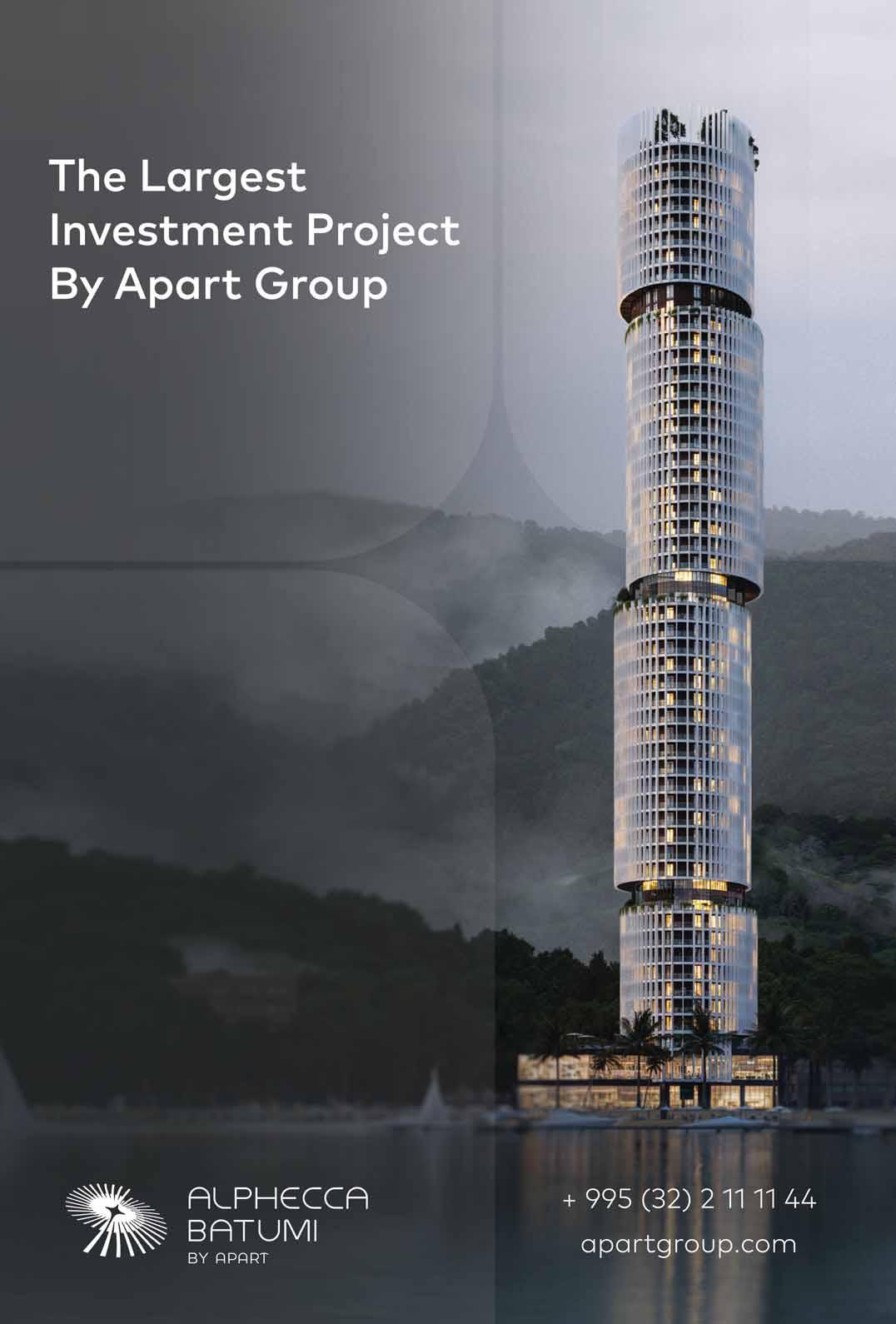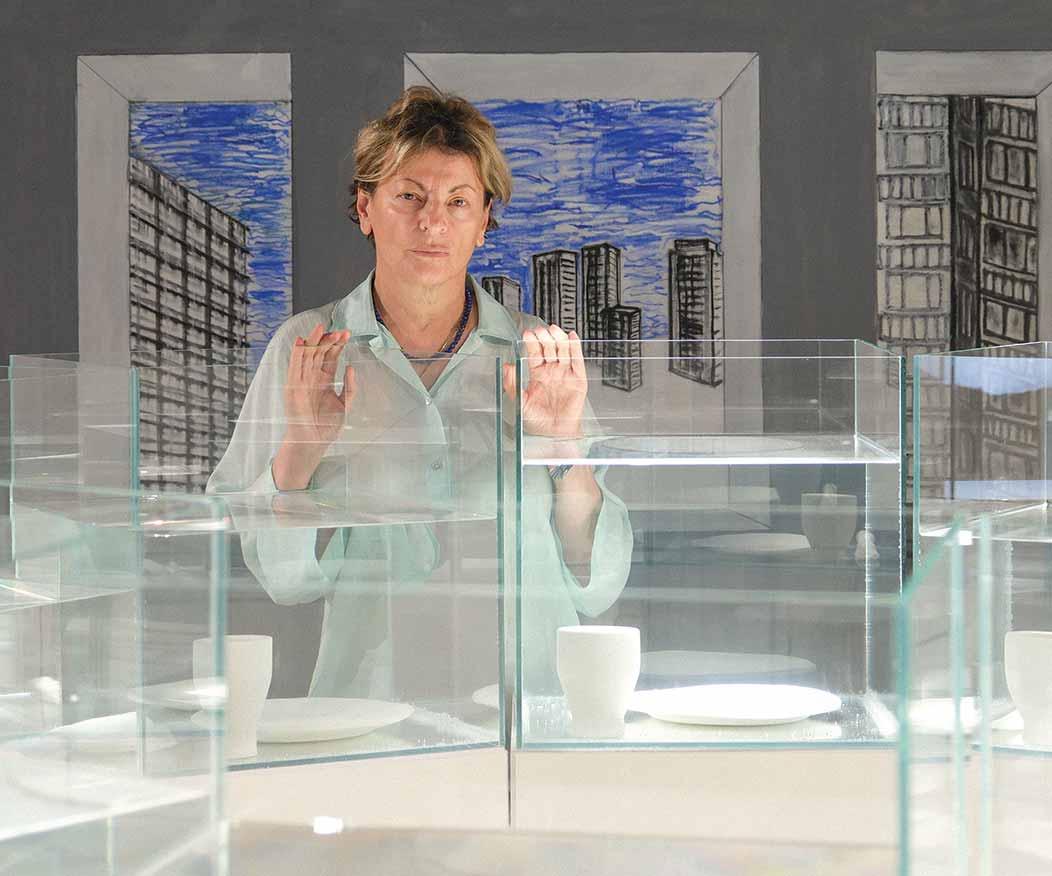

Warns Georgia over Democratic Backsliding, Threatens Visa Suspension FOCUS
The
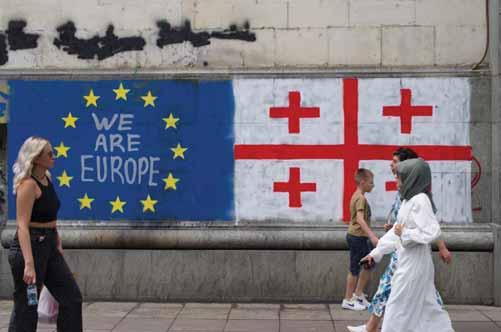
this week’s issue...
Tbilisi Building Collapse Sparks Outcry as Mayor Defends Housing Policy, Public Defender Demands Urgent Reform
NEWS PAGE 2
Ukraine Latest: Russia Escalates Drone Attacks as Ukraine Ramps Up Domestic Arms Production
POLITICS PAGE 3
The High Cost of Breaking Free: Armenia’s Risky Road West
POLITICS PAGE 5
OP-ED: In the Middle of Unmitigated Turmoil— Georgia’s Quiet Strength
SOCIETY PAGE 8
Cinema in Revolt: Weimar Film Classics Reimagined with Live Music in Tbilisi’s Goethe-Institut Courtyard
CULTURE PAGE 10
‘Suliko’ Recognized as Part of Georgia’s Intangible Cultural Heritage
CULTURE PAGE 10


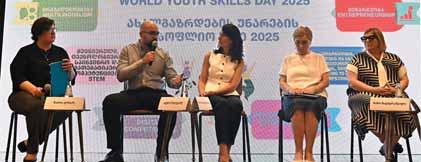
UNICEF Calls
for Empowering Adolescents through Skill-Building on World Youth Skills Day
BY TEAM GT
In celebration of World Youth Skills Day, UNICEF calls for comprehensive approach to cognitive, emotional, and social development of adolescents and youth while releasing a new study on skills and competencies of young people in Georgia.
With the support of the Government of France, UNICEF partnered with Child Rights Centers from state and private universities in seven regions to conduct a targeted study Skills mapping and Needs Assessment of Key Competencies of Youth in Georgia. The study aimed to map skills and assess key lifelong learning competencies based on the European Commission's recommendations.
The challenges faced by young people as per the mapping study are multifaceted, spanning literacy, multilingualism, science, technology, engineering, and mathematics (STEM) education, digital competence, personal development, citizenship, entrepreneurial skills, and mental health.
“In a rapidly changing world, the skills and talents of children and adolescents are more crucial than ever. They are the driving force behind future innovation, economic growth, and social progress. UNICEF is working with governments, educational institutions, and private sector partners to ensure that children and adolescents have access to quality education and training. Skills development will be one of the main directions of our next country programme of cooperation. Together with our partners we will address the gaps in youth competencies to ensure their successful transition into adulthood’’- said Jesper Moller, UNICEF Representative in Georgia.
Some of the main findings of the study are:
• Adolescents face significant challenges in literacy, particularly in expressing their thoughts clearly, with many struggling with writing skills and critical thinking.
• Ethnic minorities struggle with Georgian language proficiency, which is needed for their academic participation and development.
• Adolescents recognize the importance of STEM, but their understanding remains
limited, especially regarding the practical applications of science in real-world settings.
• Despite good digital skills, adolescents face challenges with cybersecurity, social media literacy, and understanding digital threats.
• Adolescents face challenges with self-reflection, career guidance, and personal growth, often feeling demotivated by societal and educational structures.
• Mental health remains a critical concern, with limited access to services and a need for more education on the topic.
To effectively develop key competencies in learners, it is essential to strengthen formal education from preschool to higher education and support non-formal educational opportunities, particularly for vulnerable groups. Utilizing existing platforms and Child Rights Centers, creating a free-access digital learning platform, and offering diverse learning opportunities for ethnic minorities are crucial. Additionally, supporting career education, transitions, and enhancing mental health awareness in both formal and non-formal education settings are vital for comprehensive youth development.
UNICEF will use the mapping results in shaping future programming to support children and adolescents in development and successful transitions in education and employment in Georgia.
ABOUT
Lifelong competencies are crucial for individuals to effectively navigate the complexities of modern life, work, and society. These skills form a comprehensive framework that supports continuous personal and professional development. The development of these competencies is deeply interconnected with formal, non-formal and informal education from early ages through life.
The study was conducted in OctoberNovember 2024 in Tbilisi, Telavi, Kutaisi, Batumi, Zugdidi, Gori, Akhaltsikhe, and Akhalkalaki and used a mixed-methods approach, predominantly qualitative methods supplemented by quantitative data where appropriate. A total of 155 students, aged 18-20, were selected from diverse backgrounds, ensuring a representative sample that included students from rural and urban areas, various academic levels, and ethnic groups.
Tbilisi Building Collapse Sparks Outcry as Mayor Defends Housing Policy, Public Defender Demands Urgent Reform
BY TEAM GT
Following the deadly collapse of a residential building on Tevdore Mghvdeli Street near Station Square, Tbilisi Mayor Kakha Kaladze addressed public outrage, rejecting claims of municipal negligence and emphasizing that residents had been offered alternatives under the city’s official housing replacement program.
“We’re not the kind of people who storm into families’ homes and drag them out,” Kaladze said. “We’re building a modern state where people can move from dangerous buildings into new apartments, backed by the municipality—not private investors.” He insisted City Hall had fulfilled its obligations, stating that only two residents of the collapsed building accepted the city's offer and are currently receiving rent support.
Kaladze dismissed the backlash as politically motivated and stressed that structural problems must be addressed with honesty, not blame. “Governments and mayors will change, but these issues will persist unless tackled responsibly,” he said.
The July 14 collapse, which resulted in two deaths and a hospitalization, drew a strong response from Public Defender Levan Ioseliani, who extended condolences and criticized the ongoing failure to secure safe housing for thousands of Tbilisi residents. According to City Hall,
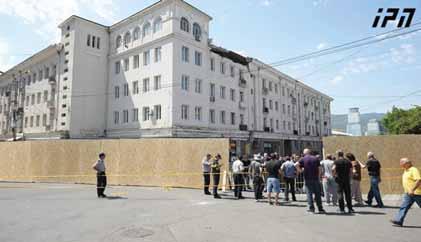
more than 10,000 buildings in the capital are classified as unsafe—a figure unchanged since at least 2021.
Of these, only 2,337 are currently under municipal review. Progress has been slow: negotiations are ongoing with 43 condominiums, full agreements reached in 13 cases, and actual reconstruction started at just two sites. The sluggish pace is largely due to complex negotiations among residents, local authorities, and developers.
Buildings are rated on a five-level scale by experts from the Levan Samkharauli National Bureau of Forensic Expertise. Only those in categories III–V, indicating structural damage or imminent danger, are eligible for the city’s housing replacement program. Under this initiative, residents are offered new apart-
ments equal in size to their current homes, and rent is covered during temporary relocation.
Following this week’s collapse, 102 residents were evacuated and temporarily housed in 11 hotels by the Didube District Administration. Residents were allowed to retrieve their belongings from the site under a firefighter-supervised schedule.
Ioseliani’s office is investigating whether residents’ rights to a safe living environment were upheld. “For years, citizens have appealed to us about hazardous housing,” his statement read. “These conditions endanger not only residents but everyone nearby. The issue demands urgent, effective, and systemic solutions—something current policies have yet to deliver.”
Tourism Change in Imereti: Fewer Europeans, More Visitors from the Middle East
BY MARIAM RAZMADZE
Lasha Berekashvili, director of Travel To Georgia, shares that tourism trends in Georgia’s Imereti region are changing this summer, as fewer European travelers are visiting the area while arrivals from the Middle East are on the rise.
Speaking to local media, Berekashvili mentioned that the decline in European tourists is becoming more pronounced each month, directly impacting revenue for the local tourism industry. “We’re seeing a consistent drop in European visitors. Unfortunately, the growth we’re seeing from the Middle East isn’t enough to compensate,” he said.
The increase in Middle Eastern tourists, particularly from Israel, is the result of a recent easing of geopolitical issues in the region. Budget carriers such as
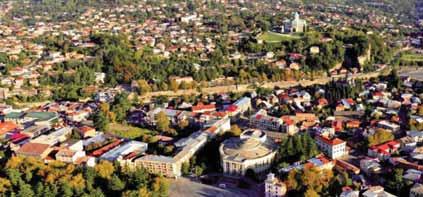
Kutaisi in Imereti, Georgia. Source: georgiantravelguide Wizz Air have also expanded air connections with Persian Gulf countries, contributing to the change. However, Berekashvili stressed that domestic tourism is still not filling the gap. He listed poor infrastructure and weak internal connections as major challenges. “There is still no direct train or flight connecting Kutaisi to Tbilisi, and the city lacks a central international bus terminal,” he said. Tourism development remains uneven across the Imereti region as all 12 municipalities are facing issues in services and infrastructure.
“Unless we invest in logistics and service quality, it will be difficult to attract or retain visitors,” Berekashvili warned.
The German Gov’t, UNDP, and CARE Caucasus Expand Support for Small Businesses Led by Ukrainian Refugees
BY TEAM GT
The United Nations Development Program (UNDP) and CARE Caucasus, with support from the German Government, are transforming the lives of Ukrainian refugees in Georgia through entrepreneurship.
At an event held at Ukrainian House in Tbilisi, 21 newly supported businesses, including 19 Ukrainian, joined a growing community of refugee entrepreneurs who have launched and grown their enterprises in Georgia since the start of the war in 2022.
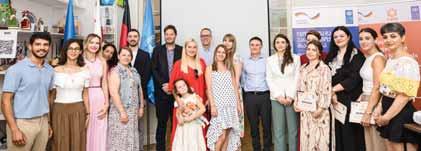
women leading these businesses and uplifting their communities.”
“Together with the German Government and UNDP, we are delighted to expand our support and welcome more businesses into this programme. Our goal is to build on these successes, reach even more people, and support an inclusive, sustainable recovery for Ukrainian families in Georgia,” added Ketevan Khachidze, CEO at CARE Caucasus.
TANGIBLE IMPACT SO FAR:
achieving an average profit margin of 50%.
• With a total grant investment of GEL370,814, the supported businesses achieved a remarkable 552% return on investment.
• They are expected to contribute around GEL73,000 annually in tax payments, proving refugees’ capacity to become active drivers of economic growth rather than passive recipients of aid.
UNDP and CARE Caucasus shared key findings of recent research analysing the economic and social impacts of entrepreneurial support for Ukrainian refugees.
“Targeted economic support from the German Government is transforming emergency aid into long-term opportunity. These vibrant Ukrainian businesses are not only helping Ukrainian people to survive the Russian attack on their
The event brought together representatives from the United Nations and the German Embassy in Georgia, CARE Caucasus, and the Ukrainian community to celebrate these achievements and highlight the power of international cooperation in fostering economic resilience and sustainable opportunities for refugees.
country. They are good for Georgia’s economy, creating local jobs, paying taxes and bringing fresh skills and ideas to local markets,” said H.E. Peter Fischer, Ambassador of Germany to Georgia. Didier Trebucq, UN Resident Coordinator in Georgia, highlighted the resilience and determination of Ukrainian entrepreneurs who have built new lives and new businesses in Georgia. “Behind each enterprise is a story of resilience and dignity. It’s inspiring to see so many
Since 2022, refugee-led small and medium-sized enterprises supported by the German Government, UNDP, and CARE Caucasus have delivered impressive economic and social results:
• 32 of 39 supported refugee businesses, most of them set up by Ukrainian refugees, remain fully operational. 23 of them are led by women.
• Over roughly 16 months, these enterprises generated GEL 8.4 million in income and GEL 2 million in profit,
• These businesses span diverse sectors, from crafts and confectionery to tech services and hospitality, showcasing the skills, creativity, and determination of refugee entrepreneurs.
• The project’s broader approach, which combines financial support with mentorship, business training, and language development, has helped refugees rebuild their lives with dignity, resilience, and hope for the future.
For more information, including detailed research findings, please visit the UNDP website.
Ukraine Latest: Russia Escalates Drone Attacks as Ukraine Ramps Up Domestic Arms Production
COMPILED BY ANA DUBADZE
As the war in Ukraine grinds through its third brutal summer, the past week brought a flurry of intense aerial assaults, rising civilian casualties, and strategic diplomatic movements across Europe and the US. Here's where things stand: Eastern Ukraine continues to suffer from devastating Russian air raids. On Wednesday, a Russian bomb struck a bustling shopping center and open-air market in Dobropillia, in the Donetsk region. Regional governor Vadym Filashkin says the attack involved a 500-kilogram bomb. At least two people were killed and 22 others injured, with severe damage reported across the area.
Simultaneously, Russia launched a massive overnight drone offensive. Ukrainian Air Force says over 400 Iranian-made Shahed drones and decoy drones were deployed along with a ballistic missile. These targeted cities across Ukraine— including Kharkiv in the northeast, Kryvyi Rih in central Ukraine, Vinnytsia in the west, and the southern port city of Odesa. Ukrainian air defenses reportedly intercepted a significant portion of the attacks, but not without material damage and civilian anxiety.
The Ukrainian counter-offensive in Russian-held territories and border regions also continued this week. A Ukrainian drone strike on the Russian city of Belgorod killed one person and injured six, while another strike on a nearby village injured one more civilian. In Russia’s Smolensk region, a separate drone attack injured one individual, says local governor Vasily Anokhin.
Early Thursday morning, Moscow itself came under threat once again as three Ukrainian drones were intercepted over the capital. Mayor Sergei Sobyanin confirmed the attack via Telegram, stating that no casualties or structural damage were reported. Russia’s Ministry of Defense claimed that its air defense systems destroyed 48 Ukrainian drones within just three and a half hours late Wednesday, marking one of the busiest nights in months for drone warfare.
Ukrainian President Volodymyr Zelensky outlined a bold plan for military self-sufficiency in his nightly address on Wednesday. Emphasizing the urgency of securing a more sustainable supply of weapons, Zelensky declared that Ukraine aims to produce at least 50% of its required weaponry domestically within the next six months. “The production volumes are truly large, but we need more,” he said, acknowledging the limitations of relying solely on foreign aid.
Meanwhile, Bahrain confirmed it will not transfer any US-purchased Patriot air defense systems to Ukraine. The announcement came during a joint press conference at the White House, where Bahrain’s Crown Prince Salman bin Hamad Al Khalifa clarified his country’s position in response to speculation about re-exports of US-made systems.
As the fighting continues, diplomatic activity around the war has intensified.
German Chancellor Friedrich Merz met with newly elected UK Prime Minister Keir Starmer on Thursday in London. Their discussions focused heavily on coordinating military and humanitarian support for Ukraine. The two nations signed a comprehensive friendship treaty, which includes a mutual assistance clause viewed as a “highly significant” step amid
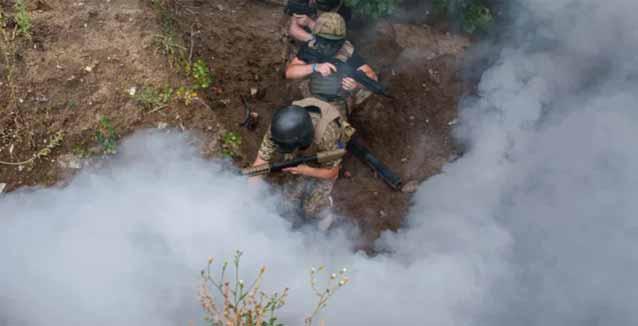
growing Russian aggression.
In a significant financial move, the European Commission proposed a 100-billion-euro fund aimed at supporting Ukraine’s long-term recovery and reconstruction. EU Budget Commissioner Piotr Serafin described the fund as a “long-term commitment” not only to Ukraine’s physical recovery, but to the stabilization of its democratic institutions and economic sustainability.
With the NATO summit just weeks away, alliance leaders are preparing to unveil a new strategy for Ukraine. Reports suggest a potential shift toward multiyear defense planning and expanded training programs for Ukrainian troops, as well as joint production ventures to scale up Europe-based weapons manu-
facturing. These measures are expected to supplement Kyiv’s own domestic military production efforts.
Meanwhile, Finland, Poland, and the Baltic states have called for the deployment of additional NATO forces along the eastern flank, citing increased Russian military activity in Belarus and Kaliningrad. Intelligence sources also suggest Russia is moving additional Iskander missile systems closer to the Polish border, a move that NATO has described as “provocative.”
The humanitarian toll continues to mount. With fresh attacks hitting civilian infrastructure almost daily, millions remain displaced or without access to consistent electricity and water. International aid groups report a rise in men-
tal health concerns among children in eastern Ukraine and are calling for expanded funding and logistical support to deliver relief in hard-to-reach areas. As of mid-July 2025, the war shows no signs of abating. Drone warfare and longrange attacks have become a defining feature of this phase, with both sides pushing technological and strategic boundaries. While Ukraine continues to rally international support and build domestic capacity, Russia’s relentless air raids and missile strikes underscore the difficulty of reaching a decisive military resolution.
Diplomatic talks may gain momentum in the second half of the year, especially following the NATO summit and further EU-US cooperation.
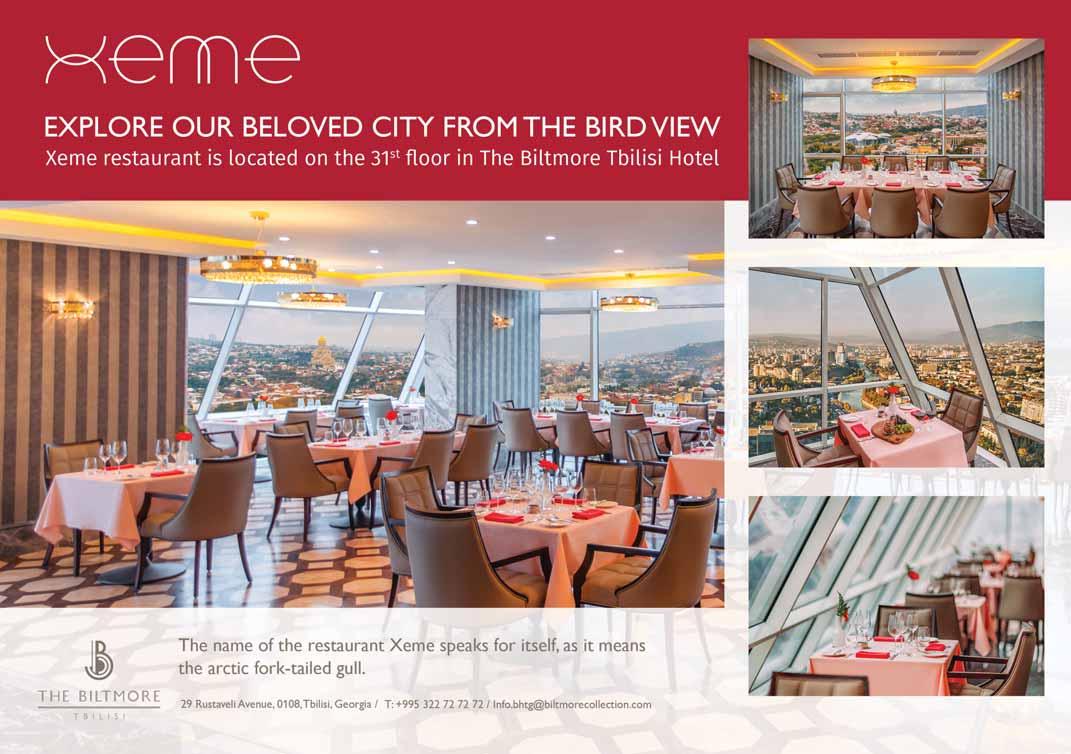
OP-ED: Why Azerbaijan is No Friend of Ukraine
OP-ED BY SAAHIL MENON
Kyiv would be sorely mistaken to expect greater sympathy from the Aliyev family dictatorship as bilateral relations between Baku and Moscow hit rock bottom.
Two weeks ago, two ethnic Azeri brothers, Huseyn Safarov (60) and Ziyaddin Safarov (55), were rounded up alongside 50 of their fellow compatriots in Yekaterinburg, and were eventually tortured to death by the Russian Federal Security Service (FSB) as part of an apparent counterterrorism operation dating back to 2001. It is worth noting that this Kremlin-led provocation came on the heels of a Russian surface-to-air ‘Pantsir-S’ missile downing Azerbaijan Airlines (AZAL) Flight 8243 near Aktau in Southwestern Kazakhstan seven months ago, and Vladimir Putin’s subsequent refusal to admit any wrongdoing by his paranoid military forces or even offer the victims’ families blood money.
Rather than giving diplomacy a chance and being met with signature Kremlin obfuscation once again, Azerbaijan’s President Ilham Aliyev took matters into his own hands this time around and had local authorities raid the Baku bureau of Russian propaganda news agency Sputnik, following which seven executives were arrested on fraud, espionage and money-laundering charges. A further eight Russian “IT specialists” based in the Azeri capital were detained for their involvement in cybercrime activity and drug-running. Meanwhile, Azerbaijan’s Ministry of Culture scrapped all scheduled Russian concerts, exhibitions and privately-held events in retaliation for what Aliyev described as “targeted extrajudicial killings on the basis of nationality” by Moscow.
To his credit, Ukrainian leader Volodymyr Zelensky wasted no time in reaching out to his Azeri counterpart and expressing solidarity with yet another post-Soviet republic Putin is bent on cutting down to size. That said, whether Russia’s strained ties with Azerbaijan will translate into the latter throwing its weight behind Ukraine is anyone’s guess. After all, there was no such knee jerk reaction from Aliyev when the AZAL plane crash occurred and killed 38 passengers, not to mention anything of the three conditions he put forward that were essentially ignored by Putin. Unlike neighboring Tbilisi, for instance, one would be hard-pressed to find any Ukrainian flags
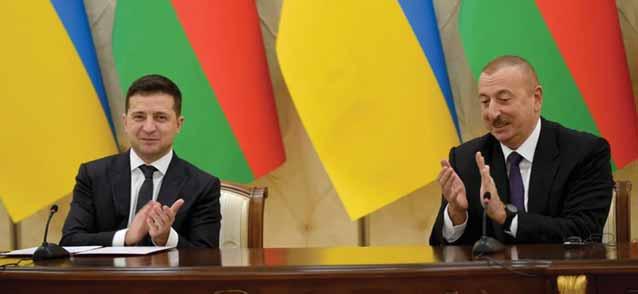
or anti-Russia graffiti in the streets of Baku, no matter how much tensions with Moscow escalate.
Insecure, and lacking popular legitimacy, Aliyev does not want other causes or movements to overshadow the deitylike reverence he commands from the oppressed Azerbaijani masses. This is precisely why the like-minded Gulf Arab sheikhs outlaw pro-Palestine demonstrations and activism in their personal fiefdoms, notwithstanding domestic outrage at Israel’s continued bombardment of Gaza and the West Bank. The fact that Azerbaijan’s land borders have remained closed since the onset of the coronavirus pandemic is a deliberate effort by its ruling clan to keep the Caspian petrostate from becoming a safe haven for exiled Russian and Iranian regime critics.
From Baku’s standpoint, any stateendorsed support for Ukraine, the party whose territorial integrity and right to self-determination was violated by an imperial aggressor, risks backfiring tremendously. For starters, ordinary Azerbaijanis may likewise feel emboldened to demand civil liberties, independent media, fair elections, government transparency and other basic democratic norms that are anathema to the Aliyev dynasty. The 2025 Reporters Without Borders (RSF) index for press freedom ranks Azerbaijan 167th out of 180 countries: lower than Belarus, Cuba, Venezuela and Saudi Arabia. Worse still, taking a more assertive stance with respect to the Russo-Ukrainian crisis, however principled, could thrust Azerbaijan’s flagrant human rights atrocities and untold war crimes during the 2020
Nagorno-Karabakh conflict back into focus. These include ethnically cleansing no less than 100,000 indigenous Armenians from the captured enclave, the systematic erasure of its Orthodox Christian heritage and the ill-treatment of Armenian prisoners of war.
When it comes to foreign policy considerations and goals, Baku’s apathy visà-vis closer European integration and limited access to US financial assistance under Section 907 of the Freedom Support Act means it is under no real external pressure or duress to side with Kyiv. Needless to say, Azerbaijan is not pursuing EU Candidacy, an association agreement with Brussels or even visa-free entry to the Schengen Area. Instead, it prefers to maintain a purely transactional, no-nonsense partnership with Europe, underpinned by the steady supply of cheap energy via the Southern Gas Corridor (SCG) and Trans-Adriatic Pipeline (TAP) as an alternative to phased out Russian hydrocarbons.
The Azerbaijani government’s attempts at extricating ideological differences from their cooperation with the EU and the West writ large have, however, not always proven successful. As a means of settling scores with France over its arms sales to Armenia, Baku has sought to whip up anti-colonial sentiment in French overseas dependencies, namely New Caledonia, Mayotte and Guadeloupe, via so-called ‘information warfare’. In terms of negative PR, Aliyev wrought further reputational damage upon himself and his country in Western corridors of power by condemning Czechia-based Azeri PhD candidate Bahruz Samadov to a
15-year prison sentence for alleged “high treason,” while jailing LSE academic Dr. Gubad Ibadoghlu since July 2023 on similar grounds.
Whereas the previous Biden administration was much more vocal about Azerbaijan’s warped conflation of antiestablishment journalists with fifth column saboteurs, and its army’s lawless conduct amid the “liberation” of NagornoKarabakh, the current Secretary of State Marco Rubio is facing growing calls from Republicans and Democrats alike to withhold military aid to the South Caucasus nation. Nonetheless, of far greater concern to Aliyev is Azerbaijan’s standing and perception across the Global South, particularly among the BRICS member states and partners. Despite the theatrical tit-for-tat Aliyev and Putin are engaged in to prove a point to their respective audiences, Azerbaijan cannot afford to burn bridges entirely with Russia. Given that tensions between Baku and Tehran have not fully subsided and, if anything, have somewhat resurfaced as a result of the recent Iran-Israel conflagration, it would be suicidal for Aliyev to make an enemy out of two regional heavyweights and find himself on the receiving end of a Russo-Iranian pincer movement. Beyond the comprehensive strategic partnership Russia and Iran ratified earlier this year, both parties are seeking payback for what they believe to be a Turkish-orchestrated coup that toppled Syria’s House of Assad last December. Aliyev, in that regard and by virtue of his proximity to Türkiye’s Islamist strongman Recep Tayyip Erdogan, is certainly fair game.
Out of hubris, stupidity and sheer contempt for public opinion, Aliyev has made plain the literal daylight robbery he and his immediate relatives were able to get away with by siphoning off Azerbaijan’s national wealth to financial hubs abroad. The notion that resource-poor Armenia has a higher GDP per capita than gas-rich Azerbaijan speaks volumes about the scale of corruption and economic mismanagement taking place under Aliyev’s watch. A 2021 OCCRP report revealed that Azerbaijan’s first family and their close associates own roughly $700 million worth of real estate in London alone, whereas Aliyev’s children have snapped up luxury properties amounting to at least $75 million in Dubai and a $35 million mansion on the outskirts of Moscow.
Just as allowing women to wear miniskirts, letting alcohol flow freely and embracing religious pluralism in a Muslim-majority country did little to shield the despotic late Shah of Iran from his day of reckoning, or disgraced Syrian dictator Bashar al-Assad for that matter, both the Kremlin and the Islamic Republic could, if pushed, tap into the legitimate grievances of Azerbaijani commoners outside the urban centers who have been short-changed by Aliyev. As though incurring the wrath of Moscow and Tehran is not a grave enough threat to Aliyev’s self-preservation, he has managed to alienate another emerging player on the international arena, India, by openly backing its arch-foe Pakistan in the latest conflagration between the two nuclear-armed South Asian nations. To some extent, hosting the latest Economic Cooperation Organization (ECO) summit in Khankendi (or Stepanakert) was a shabby ploy by Baku to legitimize Nagorno-Karabakh as undisputed Azerbaijani land in the eyes of Türkiye, Pakistan and the smaller, impoverished “-stans,” just as the Kremlin got its puppet allies Ba’athist Syria and North Korea to officially recognize the Donetsk (DPR) and Luhansk (LPR) “people’s republics” in 2022. As a revanchist police state with no regard for the welfare of its citizens and devoid of any checks and balances to hold its top brass accountable, Azerbaijan is one of the last countries on earth Ukraine should ever look to align itself with. It would be extremely premature to consider Aliyev and his inner circle elite well-wishers of the Ukrainian people in their ongoing fight for democracy and sovereignty.
First published on reinvantage.org.
Georgian Leaders Condemn EU “Ultimatum” Over Visa-Free Travel, Defend National Laws
BY TEAM GT
Georgia’s top political leaders have issued a strong response to the European Commission’s recent letter urging the country to implement eight key recommendations tied to visa liberalization. Speaker of Parliament Shalva Papuashvili and Prime Minister Irakli Kobakhidze both condemned the letter—sent by Beate Gminder, Director-General for Migration and Home Affairs—as an attempt to impose ideological conformity and infringe upon national sovereignty.
At the heart of the dispute are the EU’s demands that Georgia repeal two controversial laws: the Law on Transparency of Foreign Influence and the Law on Family Values and Protection of Minors’ Rights, as well as revise its National Human Rights Strategy to ensure protections for LGBTQ+ individuals.
Prime Minister Kobakhidze responded by making clear that peace and stability are more important than visa-free access
to the EU.
“If the choice is between peace and stability or visa-free travel, we will always choose peace. This is the will of the Georgian people,” he told journalists.
He defended the transparency and family values laws as essential tools for national security and democratic oversight, arguing that they were designed to prevent covert foreign interference and safeguard social cohesion.
“These laws are about transparency— about preventing revolutions,” Kobakhidze said. “If foreign actors want to fund political activity here, it must be done openly. Opposing transparency raises serious questions.”
Kobakhidze also warned against what he described as heavy-handed tactics by the EU, comparing Brussels’ actions to Soviet-era control:
“In the Soviet Union, Moscow sent orders and punished those who didn’t obey. Brussels must not become like Moscow. Georgia will not accept political ultimatums.”
He concluded by stating that while visa-free travel is convenient, it is not worth compromising the country’s sov-
ereignty and values.
Speaker of Parliament Shalva Papuashvili echoed the Prime Minister’s concerns, sharply criticizing what he called a “false dilemma” presented by the European Commission.
“Brussels is once again presenting us with a false choice — as if we must accept visa-free travel only if we agree to deny biological reality,” he said. “They demand that we say a man can become a woman, or they will burn us at the stake of their false ideology. This has nothing to do with European values.”
Papuashvili strongly defended the Family Values law, claiming its core principle—that gender is biologically determined—is now being treated by Brussels as incompatible with democracy.
“This is no different from forcing us to say the Earth is flat,” he added. “We remember when people were persecuted in Europe for saying otherwise. Today, Brussels is playing the same role — threatening to punish us if we don't embrace their ideological demands.”
He also accused EU institutions of supporting “radicalism, extremism, political parties, and partisan media”
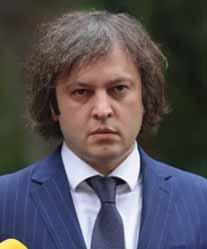
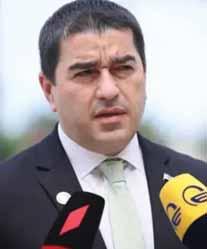
PM Kobakhidze and Speaker Papuashvili. Source: FB
through opaque foreign funding, and claimed the EU was resisting Georgian efforts to bring transparency to these activities.
“The EU bureaucracy has strayed far from its founding values,” Papuashvili said. “Instead of defending democracy and the rule of law, it is pushing ideological agendas. We’re not rejecting Europe — we are asking Brussels to return to real European values and stop forcing false choices on sovereign states.” Papuashvili also criticized the EU’s previous suspension of visa-free travel for Georgian diplomatic and service passport holders, calling it a violation of international law and the 2010 visa agreement.
The High Cost of Breaking Free: Armenia’s Risky Road West
INTERVIEW BY VAZHA TAVBERIDZE
In this interview with RFE/RL’s Georgian Service, Robert Gevondyan, a political analyst and expert at the Research Center on Security Policy in Yerevan, explains why the old logic that once bound Armenia to Russia is collapsing — and how the Church, oligarchs, and Kremlin pressure all threaten Armenia’s fragile path toward Europe. With Georgia facing its own crossroads, Gevondyan warns: the cost of turning Westward is high — but the cost of staying put is even higher.
THIS CHAPTER OF ARMENIA’S LONG HISTORY UNFOLDING BEFORE OUR EYES — WHAT IS IT REALLY ABOUT?
Armenia is now rethinking not only its foreign policy but its identity — how we see ourselves in the region and in the world. Over the past five years, especially since the 2020 war, many Armenians have realized that the principles we used to live by no longer reflect our real interests.
We assumed the world — at least until 2020 or maybe 2022 — was stable. Many believed the status quo in Karabakh would last forever. They never imagined a settlement; they thought nothing would ever change. Now there's a painful awakening. It’s difficult for society and the government, because so many realities no longer fit the expectations we had before 2020.
Russia’s war in Ukraine made this even clearer. When Russia invaded and the West and others didn’t allow it to win, many here couldn’t understand it. To them, it made no sense. The logic was simple: Russia is strong, Ukraine is weak, so Russia should win. Why help the weak?
That same mindset shaped what happened in Karabakh. People thought: Azerbaijan got stronger, we got weaker — so of course Russia didn’t help us, because the strong prevail. In the 1990s, we were stronger, we got help, and we won. That logic has now collapsed — and for many, that’s deeply painful. They can’t understand why Ukraine is getting help.
THERE SEEM TO BE TWO VISIONS NOW FOR WHAT ARMENIA SHOULD BE AND WHERE IT SHOULD BE HEADING IN THE MODERN WORLD. CAN YOU DESCRIBE THESE TWO WORLDVIEWS FOR US?
The divide runs through society. One part — the majority — wants to live in a democracy, choose its own leaders, and make its own decisions. The other part — maybe a third of the population — wants others to decide for them, because that’s how they’ve always lived. These people don’t care whether it’s a democracy or autocracy. Some even say, “Bring back Stalin,” with all the repression and dictatorship, as long as they don’t have to make decisions. They just want to live quietly, with someone else in charge.
This internal divide feeds into today’s political battles between the government and the opposition. It really flared up around February this year when presidents began making moves. First, the second president gave an interview, then Pashinyan responded, and then the third president weighed in. Even Levon TerPetrosyan joined the fray with his own criticism.
At first, it seemed like early pre-election bickering. But in May, something more serious happened: the United States offered a plan to Armenia and Azerbaijan to open regional communications, including settling the Zangezur Corridor issue. Moscow understood
that if this American-backed plan moved forward and regional links were opened under it, Russia would lose leverage. That’s not in Russia’s interest. So they had to act — by trying to influence either Armenia or Azerbaijan to block the process. And Armenia, of course, is the easier target.
Russia has many levers it can pull in Armenia. If they all get used, Armenia’s defenses won’t hold. Ideally, Moscow wants a change in government — someone who would abandon cooperation with the U.S. and align fully with Russia. How would they make that happen? By creating chaos, then using that chaos to bring in figures who could never win elections under normal circumstances. That’s where oligarch Samvel Karapetyan comes in. He was sent to Armenia much like Bidzina Ivanishvili was sent to Georgia. But Ivanishvili had time — Karapetyan doesn’t. Ivanishvili won elections and spent ten years pretending to pursue Euro-integration, only to shift gears in the last two or three years and begin passing laws Moscow wanted. If Karapetyan comes to power, he’ll have to reject everyone but Moscow from day one.
WHERE DOES THE ARMENIAN CHURCH FIT INTO THIS? IS THE CLASH BETWEEN THE PRIME MINISTER AND THE CHURCH ALSO A RESULT OF RUSSIAN MEDDLING?
That’s a mistake made by Pashinyan’s government back in 2018. After the revolution, there was talk about replacing the Catholicos, but they didn’t act on it. They said: the Constitution doesn’t allow interference, so they left the Church alone. That was their approach in general — if they removed a minister, they just promoted the deputy.
But in 2018, they had far more options. If they had wanted to replace the Catholicos, they could have. The same applies to the Constitutional Court — they failed to act, and by 2020, the old regime had regrouped.
Now, the Church supports the camp that favors a Russia-aligned Armenia, not the democratic one. The Church is conservative, and many of its members belong to that second, more authoritarian-leaning camp. Under the old governments, senior bishops had more political influence, which they lost after 2018. They want back into politics — and for that, they need the old regime back.
SO IS THE CHURCH INDIRECTLY OR DIRECTLY A PILLAR OF RUSSIAN INFLUENCE?
Directly. The Catholicos’s brother leads the Armenian Apostolic Diocese in Russia. The Church is somewhat constrained in how openly it can interfere, but it still gets involved.
DO YOU THINK THIS STANDOFF WILL END WITH VICTORY FOR ONE SIDE OR THE OTHER — OR WILL THERE BE A COMPROMISE? AND IF PASHINYAN DOES WIN, HOW MUCH WILL IT COST HIM POLITICALLY?
A month ago, I would have said the Church still had a chance to step back peacefully. All they needed to do was remove Bishop Bagrat Galstanyan, who had openly entered politics and become a key opposition figure. Once he became a political leader, he should no longer have served as a clergyman. They also should have silenced bishops who publicly declared things like “democracy is the worst thing for Armenia,” or called for a return to Stalinist rule, or even said Armenia should become a theocracy like Iran. A month ago, if they had taken those steps, I believe Pashinyan might have dropped the Church issue entirely. The Church could have gone back to focusing on religion, and the state on governance.
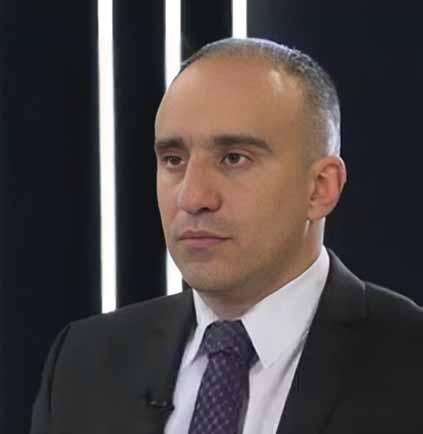
But instead, they doubled down. Here’s the key point: the opposition latches onto every possible issue. War? — the government is handling it wrong. Covid? — again, wrong. Now the Church. Their noise, their pressure, their reach pushed the Church to escalate.
Without that, the Church might have backed down. But opposition voices started yelling: “Pashinyan wants to destroy the Church, Pashinyan is Satan, the Church is sacred,” and created a situation where the Catholicos and bishops had no room to maneuver.
GEORGIA’S FORMER PRESIDENT SAAKASHVILI RECENTLY SAID, “PASHINYAN IS DOING NOW WHAT I FAILED TO DO WITH BIDZINA BACK THEN.” DO YOU AGREE WITH THAT PARALLEL?
Not exactly. Pashinyan didn’t do what Saakashvili did. When Saakashvili came to power, he removed corrupt officials. Pashinyan tackled corruption but left many of the corrupt in place.
So if the old system returns, those same people will go back to taking bribes.
When Ivanishvili came to power in Georgia, Saakashvili likely thought the country was already built — that any successor would have to play by the new rules. And for a while, Ivanishvili did. He played by the rules for about ten years, before gradually rewriting them.
Pashinyan knows he didn’t create such a system. That’s why it’s fragile — it can be flipped overnight. If Samvel Karapetyan takes power, the system will be reversed in a single day.
Saakashvili didn’t need to stop Ivanishvili — the system gave him room to act. Pashinyan has no such cushion.
HOW INTERTWINED ARE GEORGIA AND ARMENIA’S FUTURES NOW? DOES WHAT HAPPENS IN TBILISI AFFECT YEREVAN, AND VICE VERSA?
From Armenia’s perspective, Georgia is our ally and strategic partner, regardless of who’s in power or what direction they take. Ideally, we’d move forward together. If Georgia heads in the same direction Armenia is trying to go — toward Europe — that’s the best-case scenario.
Unfortunately, the current Georgian government has chosen a different path. That has two consequences from a Realpolitik standpoint. First, it makes it much harder for Armenia to access Europe if Georgia becomes pro-Russian. Second — paradoxically — it might make it easier for Armenia to work directly with
while they’re still stuck in Ukraine. AND IF, AFTER UKRAINE, THEY WANT A “QUICK, VICTORIOUS WAR” TO REASSERT THEMSELVES?
If Russia wins in Ukraine, then Armenia, Georgia, and Azerbaijan will no longer be able to maintain independence. Full stop. That’s the nightmare scenario. If, on the other hand, Russia doesn’t win — if the war is simply frozen — then maybe there’s room for maneuver. And if Russia loses decisively, like Iraq lost to Iran, then Armenia, Georgia, and Azerbaijan will all need outside support. Without that, none of us can hold Russia off alone.
DESPITE THAT THREAT, IS THE GOVERNMENT DETERMINED TO STAY ON ITS PRO-WESTERN PATH?
the West, bypassing Georgia entirely, because you can no longer rely on Georgia to act as a regional conduit.
ON ARMENIA’S PLACE IN THE REGION, MR. ZATULIN (FIRST DEPUTY CHAIRMAN OF THE COMMITTEE OF THE STATE DUMA FOR THE CIS) DESCRIBED KARABAKH AS “A BRICK IN RUSSIA’S PYRAMID IN THE SOUTH CAUCASUS,” AND ONCE IT GOT REMOVED, “THE WHOLE STRUCTURE COLLAPSED.” IS RUSSIA TRYING REBUILDING THAT PYRAMID?
The old security system in this region did collapse, yes. Russia now is trying not to let its influence disappear completely, but it has shrunk significantly, especially in Armenia. It has also shrunk, though less so, in Azerbaijan. Russia is trying to stop this decline from crossing a red line.
If Armenia and Azerbaijan strike a deal, and the US gets a real role here, Russia won’t be able to hold any red lines. Of course, as long as Russia exists, it will have a presence in the region. The question is whether it still has a voice in decisions. Will its voice matter? Will its opinion count when deals are made?
One by one, Russia can lose these steps. It might still lash out here — but decide nothing.
YOU SAID RUSSIA HAS LEVERS, AND IF IT PULLS THEM ALL, ARMENIA COULD “CEASE TO EXIST.” ONE LEVER IS MILITARY. RUSSIA HAS A MILITARY BASE IN ARMENIA. GEORGIA’S RULING PARTY HAS LONG USED THE SCAREMONGERING NARRATIVE OF “IF WE GO, RUSSIA WILL INVADE”. WHY AREN’T YOU AFRAID THEY’LL INVADE YOU?
Of course we’re afraid. There’s always that threat. But unlike Georgia or Azerbaijan, we have one advantage: we don’t share a border with Russia. The 102nd base is a threat only if the pro-Russian camp grows bigger. As long as it’s small, the base can fire at people, but each shot just grows the other camp in numbers, because they’d be shooting Armenians. People would just rise up and get rid of the 102nd base. Armenia has way more capacity than that base alone. Any Russian defense of that base would mean a war between Armenia and Russia. The chance of that is very small, because there’s no sense in fighting Armenia
Yes. Right now, we’re trying to move toward the environment where we truly belong, civilizationally. We — like Georgia — are part of European civilization. Yes, geographically, we’re part of the Middle East — just look at a map. But there’s a difference between geography and mentality. Mentally, culturally, and historically, Armenia and Georgia have always belonged to Europe. That goes back to ancient times. So this westward path is not just political — it’s civilizational. Armenia is not part of “Eurasia,” at least not in the way people like Aleksandr Dugin define it — as a Russian-Turkish sphere. For us, and for Georgia, there’s nothing in a Russian-Turkish Eurasian alliance. We belong to Europe. That doesn’t change with threats or regime changes. Even if the old regime returns and Armenia again becomes a Russian outpost, as it was before 2018, the people will still lean toward Europe.
Any thinking person wants to belong where they feel at home — and for Armenians, Europe is home.
BUT YOU SAID IF RUSSIA TRIES TO COME BACK, ARMENIA NEEDS OUTSIDE SUPPORT. HOW CONFIDENT ARE YOU THAT THE WEST WILL HAVE THE WILL, THE TIME — THE SPINE — TO GIVE THAT SUPPORT?
You can never be 100% confident. That’s just the reality of international politics — your interests align today, but maybe not tomorrow.
That’s why I say our government must go as far as possible, right now, to break free from Russian influence. So far, they’ve nationalized the electric grid, because they could. I believe the next step will be nationalizing the South Caucasus Railway, which is still controlled by Russia.
Russia has failed to meet its obligations there. It’s failed to deliver on everything it promised.
DOES THE RECENT FLARE-UP OF TENSIONS BETWEEN MOSCOW AND BAKU HELP PUSH RUSSIA OUT OF THE REGION?
Not really. Russia and Azerbaijan cannot afford to become full-blown enemies. If they did, Russia would lose its ability to keep the war in Ukraine going.
Azerbaijan helps Russia export its energy. In 2022, Azerbaijani oil and gas exports rose sixfold — but everyone knows that was Russian oil and gas moving through Azerbaijan.
What we’re seeing now between Baku and Moscow is a recalibration — not a rupture. Russia has leverage over Azerbaijan, and Azerbaijan has leverage over Russia.
The only question is where the new boundary lies. Right now, they’re renegotiating it. Baku wants more autonomy. Moscow wants to be factored in. That boundary won’t shrink to zero — that’s impossible. But it is shifting.
Economy as a Key Pillar of National Security: Essence, Trends, Challenges. Part 2
ANALYSIS BY VICTOR KIPIANI, GEOCASE CHAIRMAN
We have repeatedly discussed a unified and comprehensive model of national security. Considering the complexity and multifaceted nature of modern relations, it was established in a so-called broad sense, with the widest possible scope. In other words, security today is no longer limited to military and related aspects alone - it equally extends across virtually every layer of state and societal functioning.
CONTINUING THE DISCUSSION FROM LAST WEEK, IT BECOMES EVIDENT THAT...
Measures of economic security nowadays manifest in two forms of modern economic warfare:
(1) Control over global and sub-regional supply and delivery; and
(2) Access to mineral resources.
In fact, these are the two main categories or arenas where the superiority of a particular country determines its geopolitical dominance. If we focus on the two leading actors - those shaping the system of economic order - the current situation is as follows:
To influence global supply and delivery, the United States primarily operates through tariff pressure. However, it is also worth noting that if the desired outcome is not achieved within the current framework, the US would need hundreds of billions of dollars to build an alternative supply and delivery system. In addition to the financial costs, the willingness of global partners to create such an alternative while bypassing China will also be a crucial factor.
In contrast, the People’s Republic of China largely relies on non-tariff countermeasures and sees its advantage in access to rare mineral resources. It is notable that the status quo in this regard is indeed impressive: 70% of the world’s rare mineral resources are extracted in China, while over 90% of global mineral processing and more than 80% of magnetic battery production also take place in China.
THREATS OF “INTERNAL” ORIGIN
In relation to economic security, this is a highly specific category which is of the so called “internal” origin - meaning that their causes are attributed to the preferences and practices of the ruling political and dominant business elite. Such threats particularly characterize recent developments, and I would categorize them as follows:
(1) The destruction of even the minimum necessary separation between politics and business, leading to polygarchy - the extreme penetration of business interests into politics. This is a highly dangerous development for the security system, because in such a case, the business lobby will completely dominate the state interests and put them at its service unconditionally – without looking back.
(2) The “monetization” of foreign policy, which links external objectives to the pursuit of specific commercial

gains. This phenomenon, too, has become particularly evident and persistent in our time.
(3) The collapse of the institutional governance system within the country in favor of oligarchic interests, which ultimately leads to the dysfunction of institutions. This flaw directly and unequivocally results in the deterioration of the overall national security - including economic security - system.
(4) The sharp increase in the role of non-state actors - particularly technology and media companies - and the institutionalization of their involvement (or interference?) in shaping state policy. Practically speaking, from the perspective of recent decades, we are witnessing the transformation of the classical model of state governance into a hybrid form - the so-called “techno-oligarchy.” It is highly likely that this trend will only continue to grow, which, once again, poses a serious challenge to the system of economic security.
IS THE EUROPEAN UNION ADEQUATELY PREPARED?
It has become a somewhat bad practice for the European Union to act largely after the fact with regard to global processes. It seems that it prefers to be “second in command,” and is more concerned with observing events before making a specific decision.
Many may disagree with this view. However, I still believe that, having grown accustomed to the so-called “granted” peace and prosperity, the members of the European Union have allowed both the sharpness of their will and the firmness of their resources to dull. Alongside “strategic autonomy” and a series of protectionist measures, it seems to have become almost a rule within the European context that a major, fundamental, and dramatic event must occur to prompt a proper awakening. For Europeans, the war in Ukraine has become yet another “wake-up call.”
For example, as recently as December 27, 2023, the European Union activated the Anti-Coercion Instrument, which is essentially aimed at strengthening the Union’s economic interests - both within the EU and on the global stage. By speaking about the inadmissibility of economic coercion against the European Union and its member states, the Anti-Coercion
Instrument defines the countermeasures whose implementation meets the set objective. Among the various options, the adopted act mentions the introduction of tariffs, restrictions on trade and the provision of services, aspects related to intellectual property, as well as certain prohibitions on access to foreign direct investment or public procurement.
In addition to general matters, the AntiCoercion Instrument also outlines specific decision-making procedures intended to ensure an effective response. It further addresses the issue of compensation for damages resulting from improper actions by a third country.
Overall, the Anti-Coercion Instrument serves as one of the key complementary tools to the European Economic Security Strategy presented by the European Commission in June 2023, underscoring just how relevant this type of security has become for the European Union.
WHEN DISCUSSING GEORGIA’S ECONOMIC SECURITY...
It is essential to highlight the main issue: the Georgian economy is small, and this very smallness is likely one of the key obstacles to its rapid growth. However, it is also a fact that in today’s world, “smallness” does not equate to isolation or detachment. Moreover, the interconnectedness of global economic channels (much like the “communicating vessels” principle in physics) and the widespread spillover of global shocks have made the distinction between “large” and “small” far more relative, at least in economic terms.
That is why it is extremely important that, when determining Georgia's economic policy, we constantly monitor the developments taking place around us in order to critically assess them and determine what we can do with a “cool head.” With this in mind, we will summarize several opinions (already known and repeatedly expressed in the past). In particular, to ensure the stability and self-sufficiency of our country's economic system, its competitiveness, and real growth, we should think about and care for:
• Closer integration with developed economies. This will have practical significance for the qualitative improvement of our trade and financial flows, as well as for the transfer to us and implemen-
tation of advanced technologies and knowledge.
• Expansion and diversification of export markets. It is a banal truth that dependence on any particular market means economic vulnerability and is risky from the point of view of national economic security; Accordingly, the greater the number of sources of “expenditure” and “income,” the greater the space and freedom for national and state development. All of this is also related to free trade agreements and trade associations. In the face of growing economic nationalism around the world, we must also think about and care for:
• Not only about the quantitative, but also about the qualitative side of investments. Given the current global and regional threats, I believe it is unacceptable to consider any investments desirable for our country. It is time to learn how to distinguish between them and select the right ones. To this end, we consider it expedient to introduce a mechanism for reviewing investments, known as “screening,” into legislation. It should also be noted that many advanced economic systems currently use this method.
• Timely allocation of necessary resources and support toward the country’s intellectual capacity. Without ensuring such “intellectual self-sufficiency,” we are doomed to witness the outflow of highly valuable talent from Georgia, thereby hollowing out our competitiveness and growth potential in the near future.
In addition to the above, we would consider the following as practical measures:
• The issue of economic security should be given a prominent and important place in Georgia’s national security doctrine. Such special attention is once again dictated by the modern and multifaceted understanding of “security.”
We must agree that national security is inconceivable without a comprehensive set of economic measures, as in this world no one considers or engages with the weak, the poor, and the dependent as a worthy partner.
• Within the format of the National Security Council to be reestablished, the economic security dimension should be strengthened. One possible development could be the creation of a separate Economic Security Council or its insti-
Georgia must invest in its own functional competitiveness, effective security and inclusive development in order to reclaim its place within the existing “disorderly order"
tutionalization within the structure of the National Security Council.
• When discussing a structural approach, we should also consider the possible introduction of the position of Minister of Economic Security within the Government of Georgia, with an appropriate area of oversight and functions.
• Whether under the auspices of an Economic Security Council or a Minister of Economic Security, one of the core tasks should be the continuous monitoring and analysis of risks and threats to Georgia’s economic security. This process will be reflected in a periodic economic threat assessment document in an objective format (similar to the practice in the European Union). Among other necessary issues, the document will evaluate short-, medium-, and long-term risks to the country’s economic security, as well as recommend measures for their mitigation and management.
• Alongside the doctrinal approach, we should also discuss the advisability of legislation aimed at ensuring economic security (for instance, a “Georgian Economic Security Act”). When working on such legislation, special attention should be paid, among other things, to the following: (a) Coordination among government agencies during times of crisis; (b) The ability to rapidly shift from one delivery and supply system to another on a global or regional scale, as well as reducing excessive dependence on any single system; (c) Promoting innovations in critical sectors.
The implementation of these or other necessary measures will only be possible under conditions of normalized domestic political processes in Georgia. We neither have the "luxury" nor the resources to continue functioning amid “political business” and disrepute existing outside institutions, focusing exclusively on static concerns of preserving or gaining power.
Today, the country faces a task for which there is virtually no alternative: to invest in its own functional competitiveness, effective security, and inclusive development in order to reclaim its place within the existing “disorderly order.”
EU Warns Georgia over Democratic Backsliding, Threatens Visa Suspension
Continued from page 1
She confirmed that two judges are included in a proposed sanctions package, citing disproportionate sentencing of protesters and broader concerns over judicial independence.
The Commission’s letter reiterates eight key recommendations, including repealing laws restricting civil society and LGBTQ+ rights, aligning Georgia’s visa policies with the EU, and strength-
ening anti-corruption institutions. To note, visa-free travel for Georgian diplomatic and service passport holders was already suspended in January due to the ongoing concerns.
“I count on your cooperation in addressing this important matter and I reaffirm the EU’s continued commitment to strong and values-based relations with Georgia,” the letter concludes.
Georgian officials responded defiantly.
Parliament Speaker Shalva Papuashvili
called Kallas’ remarks “shameful,” accusing the EU of pressuring Georgia’s independent judiciary. “Do EU citizens really want their future shaped by officials who threaten sovereign countries and their courts?” he asked. Tbilisi Mayor Kakha Kaladze echoed the sentiment, accusing the EU of long-standing “blackmail” and defending the government’s stance as a response to “unjust and slanderous” Western narratives.
In stark contrast, former President
Salome Zurabishvili urged the EU to act decisively. In a letter ahead of the July 15 EU Foreign Affairs Council, she accused the ruling party of steering Georgia toward authoritarianism and aligning with Russian and Chinese interests. Highlighting strategic risks, she warned of Moscow’s post-Ukraine influence tactics and Beijing’s role in key Black Sea infrastructure, such as the Anaklia port.
Opposition leader Giorgi Gakharia, speaking from Brussels, accused the
government of corruption and antiEuropeanism. He warned that Georgian Dream was willing to sacrifice citizens’ visa rights to shield itself from personal sanctions. “They’re hiding behind citizens,” he said, while calling for unity among opposition forces to defend Georgia’s European path.
“This is more than a domestic issue,” Zurabishvili wrote. “It is a European crisis—and the time for strategic patience has passed.”
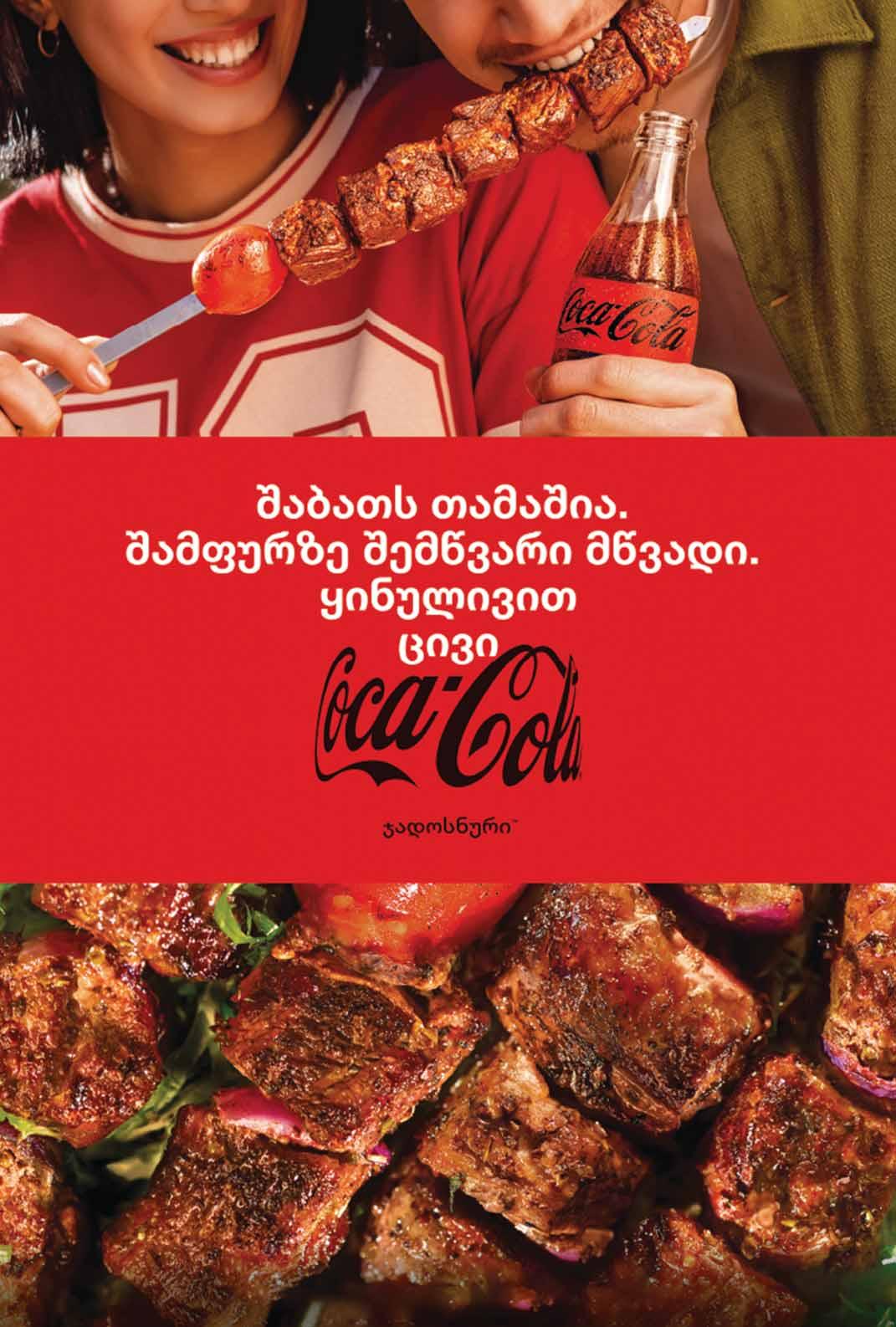
OP-ED: In the Middle of Unmitigated Turmoil—Georgia’s Quiet Strength
OP-ED BY NUGZAR B. RUHADZE
As the world rapidly unravels into a dense web of geopolitical conflicts, one small country stands as an unexpected pillar of calm— and that’s Sakartvelo. While headlines scream of chaos, economic decline, and diplomatic standoffs, Georgia’s reality tells a different story. Resorts remain full of smiling tourists, malls bustle with commerce, highways are packed with eager travelers, and the national currency holds firm in the face of global uncertainty.
How is this possible? A believer might call it divine providence. An atheist might credit pragmatic governance, or perhaps mere luck. But regardless of where one falls on that spectrum, it’s clear that something remarkably effective is keeping Georgia afloat, and even thriving, while much of the world wavers.
At the heart of this paradox lies a complex balancing act. Georgia’s current administration continues a challenging diplomatic dance, reassuring Western allies that the country’s constitutional ideals and foreign policy direction remain unchanged, even as those same allies grow increasingly critical. Meanwhile, the North offers no promises, no partnerships, no direction.
Georgia, in this delicate geopolitical tug-of-war, faces solitude—a kind of
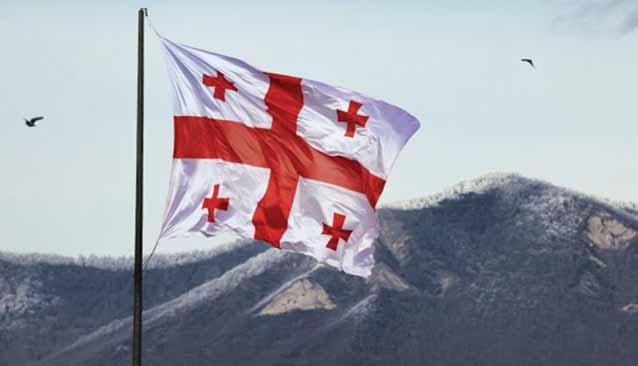
risks being flattened, and families are no longer built upon the familiar cornerstones of identity and role. This is not a sentimental resistance to progress. Rather, it is a principled call to preserve something deeply human: the right to selfdefine, to value one’s roots, to raise children in continuity, not confusion. Despite what media narratives suggest, most people—across nations, ages, and beliefs—still cherish their values. We still get married. We still strive to build families. We still celebrate our customs and keep our languages alive. This yearning for continuity is not old-fashioned; it is deeply natural.
diplomatic isolation that would cripple many larger, wealthier nations. Yet this small, historically burdened country stands resilient. And not just resilient, but self-assured—even optimistic. There is something admirable, even quietly heroic, in this national posture. In the face of relentless external pressure, some of it overtly threatening, Georgia refuses to bow or break. The country holds its ground, rooted in centuries of cultural and spiritual identity. This is not stubbornness for its own sake. It is a carefully measured form of independence, grounded in a national ethos that values sovereignty, family, tradition, and continuity.
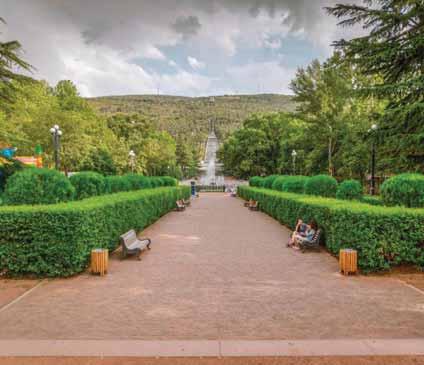
Tbilisi Begins Longterm Rehabilitation of Vake Park Fountains
BY MARIAM RAZMADZE
Tbilisi City Hall has started a major rehabilitation project for the fountains and cascade system in Vake Park, with expected completion in spring 2027. Mayor Kakha Kaladze announced the project during a recent municipal government meeting. The renovation will maintain the park’s original aesthetic while upgrading primary infrastructure. Planned improvements include full replacement of drainage, electrical, and water supply systems, installation of energy-efficient lighting,
waterproofing of pools and the cascade and new pumps. All of which must meet technical standards.
The first stage involves research and engineering design, including a detailed assessment of the current fountain structures and geological conditions.
City Hall has required that all contractors or their personnel have experience in fountain installation or rehabilitation in European Union countries since January 1, 2020, under EN50110-1 standards.
“Given the tragedy we faced, it is crucial that European experts are involved in this restoration,” Kaladze stated, referencing a previous incident that highlighted safety concerns within the park’s infrastructure.
Today, Georgia stands at a profound crossroads. On one side lies the path of true independence: a sovereign future
shaped by its own cultural blueprint, rooted in history and guided by traditional values. On the other is the path of global assimilation: integration into an increasingly homogenized world where borders blur, nationhood weakens, and identity is recast into universal sameness.
In this new paradigm, cultures risk becoming artifacts, spiritual diversity
I know this not only as a Georgian, but as a citizen of the world who has spoken to many—Europeans, Americans, Asians, Africans—young and old, religious and secular. Their voices echo one sentiment: yes, the world is changing, but please don’t let everything be erased. There is a sweetness, a quiet pride, in one’s own statehood, in true independence, in knowing that your children will inherit not just a global system, but a homeland. A sense of place. A name. A legacy.
And as Georgia walks its path forward, balancing openness with identity, modernity with meaning, the world would do well to take notice. Because in the end, maybe strength isn’t only about military power or economic leverage. Maybe true strength is the ability to hold onto who you are—when the world is telling you to let go.
General Panic Time. Is That What (Chat)GPT Stands For?
BLOG BY TONY HANMER
Iremember well, as I’ve written before, my family’s getting our first computer: a Commodore 64. When I was 17, in 1984 (nice dystopian book-title year). It had 64 KILO-bytes of RAM, a millionth of what some laptops have today. A desktop model, it came with a drive for actual floppy disks, 5.25” squares of about 1 MB memory size, which could be DOUBLED using a pair of SCISSORS to turn them 2-sided. Freaky. Screen: 200 by 320 pixels and all of 16 colors: again, a millionth of today’s available hues. Operating system? DOS, pre-windows 3.1. The revolution had entered our home. My parents hardly knew what to make of what they had bought. But we three teenage siblings dove right in.
Now, 41 years and lots of sci-fi books and films later, I find my own self bewildered; much in my parents’ shoes, actually, as is typical from one generation to the next. The new acronyms need learning. As for the new processes the last few years, I will likely never become a regular user of AI chatbots or other assistants to: improve my writing, make a fortune (though that’s tempting), generate still images or videos or music or songs, get a software therapist or companion. I suppose, as my sixth decade closes in, I’m a traditionalist in these things. Meanwhile, in other news: Marrying one’s AI companion?!
Every single person on the planet with a smartphone and internet access can now have their own utterly unique media channel, delivering content tailored to exactly their likes and dislikes in a neverending STREAM (or SCREAM).
It’s too easy for me to imagine losing too much freedom to a program which, at the start, can barely if at all pass the famous Turing test for “intelligence,” but which in my nightmares ends up running, then ending, my life, having decided that I am one of the 8-plus billion parasites on this world. Sorry/not sorry for the run-on sentence. Bear with me.
There are definitely at least two camps in mass media around the subject of
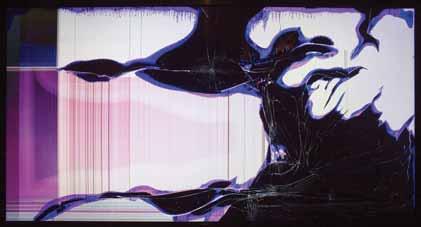
promoting AI’s rise: that urging caution, and that urging surging (after all, if We, the “West,” don’t get there first, the Chinese will!). I follow this subject keenly, and try to find reasonable voices on both sides to listen to.
The stakes seem infinitely high. If AI “gets loose” and decides that we are the world’s main problem, are we doomed?
One way in which I suppose I’m in the small minority in thinking that we are all not just the sum of our material parts, but possessed of soul and spirit aside from body: things which I believe that AI will never gain. So, in spite of all its “cleverness” and speed and processing power, the capacity to really empathize, to model and thus analyze oneself and then others, may forever lie beyond it.
It might be able to fake emotions, but I don’t see it getting the true self-awareness that we, its human makers, have.
But if people have already followed their AI companion’s advice and committed suicide, as the media has reported recently, where can we go together next?
To what depths can we sink? We are far from perfect and far from innately good, after all, as the last centuries show all too well, despite our technological flights higher and higher. Our capacity for barbarity has not fallen away, not at all. Instead, our capacity for self-deception has grown terrifyingly. At the same time, we are leaping ahead in materials, atomics, subatomics, mathematics, inorganic and organic chemistry, physics, astrophysics, cosmology and much more.
(I just searched for actual confirmation that we HAVE found the long-sought next planet of our solar system, currently presenting strong gravitational evidence for its far-flung existence, as one recent sensational article has already reported. Clickbait… It’ll eclipse all other news for a while when it becomes true. Just an example of what we’re supposed to believe. The search is a fact, yes, but not yet the finding, not at all. How many times a day does my wife ask me if Story X on Facebook is true? I can usually present a denial in about one second, from instinct or look alone).
Not a very optimistic article, but I’m trying to get off my chest what’s on my mind. It doesn’t much keep me awake at night, though, because I still cling (with all my strength) to the unfashionable belief in a good God who will have the last word, and whom nothing can surprise. I just expect that before things get eternally better, they might first have to get terribly, sadly, horribly confusingly worse, because of us humans. Strength for that gauntlet, please.
Tony Hanmer has lived in Georgia since 1999, in Svaneti since 2007, and been a weekly writer and photographer for GT since early 2011. He runs the “Svaneti Renaissance” Facebook group, now with over 2000 members, at www.facebook.com/groups/ SvanetiRenaissance/ He and his wife also run their own guest house in Etseri: www.facebook.com/hanmer.house.svaneti
Myth, Heritage, and Modern Art: The Masterpieces of Georgian Princess Salome Kobulashvili. Part 2
BLOG BY TATJANA MONTIK
Salome's grandfather, David Kobulashvili, who graduated from the Sorbonne with a degree in horse breeding, voluntarily left for Central Asia in self-imposed exile after the revolution. He feared repression and took up sheep breeding. After a phone call to Georgia, local authorities were told not to bother the Georgian nobleman, since he had agreed to "voluntarily work for the good of the homeland."
In 1921, Salome's grand grandmother, Nina Eristavi, was forced to "gift the state" their family home, and the former owners had to move into the basement of their own house. "It so happened that my father was born in the basement of his own house," Salome exclaims. "That was the only way they managed to survive."
Salome shows me an old family album with photographs, compiled long ago by her grandfather, David Kobulashvili. He tried to pass on to his descendants not only visual memories, but also meticulously described all family ties, so that no one would ever get confused about who was who. David himself, a handsome young man with excellent posture, is captured in photographs riding a horse.
"Horses were his passion," Salome notes. "And never, not once in his life, did we hear him regret what he had lost, what had been taken from him. There was no talk of it! David always said that all these things are acquired: today you don't have it, yesterday you did, and suddenly, maybe tomorrow you will again. My grandmother raised us the same way. But they never discussed the Soviet regime. That was a closed topic."
It's noteworthy that in his advanced years, David Kobulashvili worked at the Georgian film studio as a "consultant on good manners." From one photograph,
where he is depicted at a very advanced age, a man with mischievous, childlike eyes, the embodiment of kindness and amiability, smiles broadly at us.
"In my childhood, talking about our origins was not only uncommon but also scary, and we, of course, didn't show anything off; it was considered bad taste.
I learned the story of Prince Baryatinsky from my grandmothers. After the collapse of the USSR, when there was no electricity or gas in the country, no one in Georgia cared about the return of property expropriated by the Soviet authorities. And only in the 1990s were we able to piece together the once-severed family threads, re-establishing contact with descendants of that branch of our family who had left for France after the Russian Revolution."
Though much water has flowed under the bridge since that distant time when Evgeny invited expensive foreign masters to work for him, and David gallantly rode across Georgian expanses on his lush-maned steeds, history arranged it so that exactly one hundred years later, his heiress Salome Kobulashvili, the great-great-great-granddaughter of King Erekle II, could invite her friends and acquaintances to her family home for the grand "Returning Home" exhibition. That year, the Academy of Arts turned 100 years old, and Arshakuni House celebrated its 120th anniversary. This marked the completion of another historical cycle.
"I have a quiet, calm pride in our family history, and now, after the exhibition, it's as if I have some new connection with my ancestors," the artist confesses to me.
I wonder how she feels today within the walls of the current Academy of Arts, her ancestral home? "The first time my grandmother brought me here, she whispered in my ear: 'Salome, you are little now, but you should know that this is your home!' As we climbed the beautiful staircase, I realized for the first time why grandmother, when reading me fairy
tales about princesses, would say: 'Salome, you are our princess!'"
THE PRINCESS-DENTIST
How do princesses become dentists, and then, on top of that, virtuosic artists? Salome's inclination towards art was encouraged by her grandmother Mana, who "created heaven on earth" by engaging the girl in all sorts of handicrafts and cooking. Her desire to enter an art academy was a logical step. But, beyond all this, her grandmother also knew how to prepare amazing magical ointments with which she treated half the town, while her granddaughter assisted her. This is how Salome's interest in healing began. Her mother influenced her career choice, advising her daughter to pick something practical that would provide a regular income, allowing her to support herself. "Mom said that since I wasn't afraid of blood on my hands, I'd do well in dentistry, and then I could even think about facial plastic surgery. And I liked that because facial plastic surgery is an amazing thing, just like drawing and sculpting." After graduating from medical school, Salome completed a substantial internship at a large international clinic opened in Moscow by her uncle, a representative of the French line of the Kobulashvili family. Upon returning to Tbilisi, Salome opened her own small dental practice right in her apartment, where friends and acquaintances, knowing the warm welcome awaiting them, happily flocked. Thus, many people gradually learned about Salome's art of healing, including Eduard Shevardnadze, who had by then retired from politics.
THE MOST FAMOUS PATIENT
However, Salome had one truly special patient in her career. It so happened that Alain Delon arrived as the host for opera star Paata Burchuladze's sixtieth birthday celebration. One morning, Salome received a call asking her to
reschedule her first patient to accommodate an important guest, stating that the person urgently needed to be "saved."
"And then the door opened – and in walked Alain Delon himself! It was the first and last time in my life my hand shook when I was giving an anesthetic! The artist fell asleep in the chair, purring. Many men fall asleep during my appointments. It's probably from stress. And when he woke up, he stood up, looked at his teeth, and said, 'Can I kiss you?'"
THE PRINCESS-ARTIST: A PATH TO FREEDOM
Salome calls herself a true darling of fate. The main confirmation of this is her art, which has become for her "a path of liberation and peace of mind."
Salome's foray into art began with decorating her friend's exhibition with miniature figurines. This friend was the famous sculptor Tamar Kvesitadze (author of the "Ali and Nino" sculpture in Batumi).
And then Svaneti happened to her... When she first arrived in the mighty mountainous region, the artist recalls, "it was a Klondike." She collected many different stones there, without really knowing why she needed them. But when the pandemic hit, those Svanetian stones came in very handy, transforming into works of art. "I developed a concept: if a stone reminds me of some movement, I only complement it with something, breathing life into it," Salome says with enthusiasm.
Her childhood dreams of ballet gave rise to elegant dancers, and her subconscious produced, one after another, mythical creatures, goddesses, deities, and ancient symbols. And in this way, we, the beholders, involuntarily embark on a wonderful journey into the soul of the talented, blue-blooded enchantress, Salome. For her works, Salome uses stone, glass, and wood, which she then complements with elements cast from bronze and other metals, finally pro-
cessing them with a dental drill.
"During the pandemic, my art became an escape from reality for me. When I'm working, I get an incredible dose of adrenaline, as well as immense pleasure! Moreover, in the flow of creation, I feel incredibly in love. But most importantly, I don't depend on my clients, because I don't have any. For me, art isn't a way to make money; it's my path to freedom."
Soon, with the help of friends, Salome had a website, a visual presentation of her work, which came in very handy during the pandemic because most exhibitions and art competitions were held online then. This is how Salome discovered the incredible success her art enjoys and the awards and prizes she receives at international exhibitions: Spain, Italy, Portugal, the UAE, the USA – this is just the initial list of countries where Salome's works have caused a sensation.
THE MIRACLE OF THE GEORGIAN SPIRIT
"How accurate is my feeling that every Georgian harbors incredible creative potential? Why does such a small nation have so many gifted people?" I asked Salome. "There are very few of us Georgians, perhaps less than five million. But life has really beaten us," Salome muses aloud. "How many empires have perished over millennia, and we are still here! It's a true miracle of God that we still exist! I think humour and detachment from problems have saved us over the centuries. We Georgians always subconsciously surrender ourselves to the mercy of the Lord. And in difficult situations, we usually have so much humour and childlike spontaneity that these very qualities prove to be our salvation."
The story of Salome Kobulashvili and her legacy, both historic and artistic, once again confirm that Georgia is not only a treasure trove of incredible talents but also a land of wonders, where life generously bestows amazing surprises.
A Child of Grief, A Prophet of Sound: Tsotne Zedginidze’s Recital Turns the Piano into a Monument
REVIEW BY IVAN NECHAEV
It is difficult to write about a piano recital like this without sounding overwhelmed, but perhaps that is the only appropriate reaction. On July 15th, inside the Grand Hall of the Tbilisi State Conservatoire a musical event unfolded that was a seance. The pianist was Tsotne Zedginidze, a 15-yearold Georgian composer-performer whose biography reads like a fable and whose music already carries the psychological weight of tomorrow.
The concert, dedicated to the memory of his mother, Irene Sulkhanishvili, was divided into two stark and internally resonant halves. First, two of Zedginidze’s own compositions: the “Alpine Elegie” and a “Paraphrase on Motifs of Wagner’s Ring of the Nibelungs.” After intermission, came a towering reading of Johannes Brahms’s Piano Sonata No. 3 in F minor, Op. 5—a composition filled with youthful anguish and cosmic aspirations. The pairing wasn’t chronological—it was spiritual. A boy composing his grief meets a 20-yearold Brahms wrestling with the same: death, memory, sublimity.
A VOICE BEYOND
AGE: THE CONTEXT OF TSOTNE ZEDGINIDZE
To call Zedginidze a prodigy feels both accurate and inadequate. Born in 2009, into one of Georgia’s most revered musical lineages, Tsotne began piano studies
at age 5, was composing original works at age 6, and made his solo debut by age 10, performing pieces by Berg, Janácek, and his own early music in Tbilisi. By age 12, he was already appearing with major European orchestras, and by 14, performing with Sir Simon Rattle. The Lisa Batiashvili Foundation has supported his growth as a composer and performer; his Violin Sonata, premiered with Batiashvili herself, marked a turning point in his public recognition.
ALPINE ELEGY: THE SILENCE OF MEMORY
Opening the program, Alpine Elegie plunged the hall into stillness. There were no familiar reference points. No grand romantic gestures. Instead, a series of floating tonal masses, barely voiced chords, ghosted intervals. Zedginidze composed this piece in the wake of his mother’s passing. But rather than writing a weeping requiem, he has sculpted grief into a topography: cold, elevated, distanced. As if one is walking alone through a white field, barely able to distinguish sky from snow.
Harmonically, the work bears resemblance to the late works of Liszt or the mystical austerity of Ustvolskaya. Emotionally, it avoids the catharsis of Romantic pathos. Here, memory flickers, blurs, repeats, then evaporates. The music is not “about” mourning. It is mourning: non-linear, interior, atmospheric. Zedginidze’s performance was technically flawless, but more impressively, emotionally translucent. He plays like some-

one who listens more than he speaks.
WAGNER PARAPHRASED: MYTHS DISFIGURED BY GRIEF
With Paraphrase on Motifs from Wagner’s Ring, Zedginidze enters the domain of epic sound. But this is not Liszt’s flamboyant paraphrase tradition. The young composer dismantles Wagner from the inside—stripping back bombast to reveal a haunted skeleton. Leitmotifs are quoted, but barely. They pass by like figures in a dream—recognizable, but deformed. Here is grief transfigured into archetype. The Ring is, after all, a cycle of mothers and sons, betrayals and silences. Zedginidze channels its metaphysical violence— riffs explode, recede, burn out. The work demands enormous physical control— Wagnerian weight in a pianistic body— and Zedginidze met that challenge with-
out bravado. There was no exhibitionism. Only architecture, fire, and restraint.
BRAHMS IN F MINOR: A DIALOGUE OF SHADOWS
After a silence that felt more like a spiritual reset than an intermission, Zedginidze returned to the stage for Brahms’s massive Sonata No. 3 in F minor. Composed in 1853, it is the grandest of his piano sonatas—its five movements a study in Romantic restlessness. The first movement (Allegro maestoso) emerged as a procession: stern, spacious, dignified. The pianist’s articulation of inner voices was remarkably clear, and his command of dynamic gradation was that of a seasoned artist. Zedginidze resists overstatement. He allows Brahms’s own youthful grief— over unspoken losses, over doomed
desire—to speak on its own terms. The second movement, marked “Der Abend dämmert, das Mondlicht scheint,” is one of Brahms’s few explicitly poetic markings. It was played here like a nocturne of spiritual exhaustion—moonlight through a fogged window. The Scherzo had terrifying urgency; the Intermezzo (Rückblick) folded time backward, connecting Brahms’s mourning to Zedginidze’s own. The final Allegro moderato ma rubato was rendered with luminous clarity, the pianist summoning radiance from the ruins.
A GEORGIAN ARTIST OF GLOBAL VISION
This concert was not a “youth recital.” It was a work of adult artistic authority— a monument to interior life. In Tbilisi, a city where classical music often sits under the long shadows of nationalist nostalgia or institutional inertia, Zedginidze’s music speaks a new language: precise, introspective, internationalist in its gaze.
He neither clings to Georgian folk idioms nor rejects tradition. He studies the canon like a cartographer studies maps— only to redraw them. In his original works, grief becomes form; in Brahms, form becomes grief. What unites both is an uncanny seriousness—utterly unaffected by trend or careerism. There will be encores, future symphonies, prestigious halls. But nothing will erase what happened in this one: a boy, his memory, and a piano—summoning gods and ghosts into the room.
Cinema in Revolt: Weimar Film Classics Reimagined with Live Music in Tbilisi’s Goethe-Institut Courtyard
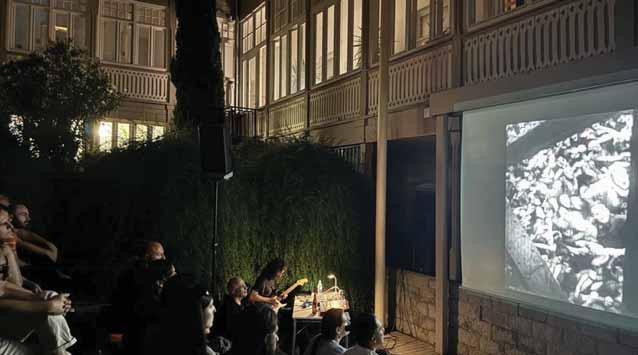
REVIEW BY IVAN NECHAEV
Under the swaying trees and the scent of raindrenched summer air, a peculiar transformation is unfolding in the courtyard of the Goethe-Institut Georgien. As darkness falls over Tbilisi, flickering black-and-white visions from another century light up a modest outdoor screen, and live sounds—at times industrial, at times delicate—crackle and bloom beneath the rustle of leaves and distant thunder. This is Sommerkino mit Musik, the Goethe-Institut’s bold summer initiative to bring the late masterpieces of Weimar cinema into sharp contemporary resonance through the disruptive, electrifying prism of live experimental music.
WEIMAR IN GEORGIA: BETWEEN ECHO AND ELECTRICITY
Between July 11 and 24, three seminal films from the twilight of the Weimar Republic—Metropolis (1927), Pandora’s Box (1929), and The Blue Angel (1930)— are being screened in the Goethe-Institut’s courtyard. But this is no ordinary retrospective. Each silent (or early sound) film is paired with a daring musical experiment: electronic composer VAZHMARR scores Lang’s dystopian epic live; pianist Nino Zhvania overlays Pabst’s psychosexual tragedy with the eerie, fragmented sonatas of John Cage. The final screening of The Blue Angel, featuring Marlene Dietrich’s unforgettable
transformation into the cabaret goddess Lola Lola, is still to come.
The Goethe-Institut’s program situates Weimar cinema not as a relic of modernism’s final sigh before fascist silence, but as a still-radical archive of aesthetic dissent—a flickering mirror in which contemporary Georgia can glimpse its own artistic tensions and civic tremors.
The format—half picnic, half protest— encourages a new generation of viewers to read these films not as academic monuments, but as live ammunition in the war over culture’s future.
METROPOLIS RECHARGED:
DYSTOPIA REWIRED
The opening night on July 11 belonged to Metropolis, Fritz Lang’s phantasmagoric city-machine of a film. First released in 1927, Metropolis remains astonishing not only for its scale—massive sets, hundreds of extras, visionary special effects— but for the dark elegance of its political allegory: a city rigidly divided between decadent technocrats above and exploited workers below, until a messianic figure bridges the two through "the heart."
But the screening in Tbilisi was far from a museum piece. VAZHMARR, the Georgian electronic musician known for sculpting texture from distortion, brought a jagged, deeply physical energy to the film. Gone were the original orchestral swellings and melodramatic motifs of Gottfried Huppertz’s score; in their place was a sonic landscape more reminiscent of industrial collapse and digital entropy. Metallic drones, fractured rhythms, and
‘Suliko’ Recognized as Part of Georgia’s Intangible Cultural Heritage
BY MARIAM RAZMADZE
Georgia’s National Agency for Cultural Heritage Preservation has granted the traditional performance of the song ‘Suliko’ official status as an element of intangible cultural heritage. The song, which dates back to 1895, was originally a poem by Georgian writer Akaki Tsereteli. Shortly after its publication in the journal ‘Kvali’, Tsereteli asked musician Varinka Tsereteli to compose a melody for it. As historical records
state, Varinka created the music independently, inspired by the poem’s rhythm and lyrical quality.
Performed frequently by Varinka herself with guitar accompaniment, the song quickly gained popularity and spread among the public. Over time, it became deeply rooted in Georgian musical culture.
For more than a century, ‘Suliko’ has been passed down through generations, becoming one of Georgia’s most widely recognized and performed songs. Officials note that ‘Suliko’ has fulfilled the
cept and the black-and-white film on screen engaged in a haunting visual and auditory rhyme.
But then, reality broke in. Rain intensified, equipment faltered, and after an hour, the screening was suspended. Goethe-Institut announced a rescheduling. Yet even in that window, the performance achieved something remarkable: it reactivated the political promise of Cage’s philosophy—chance, noise, interference—as a kind of sonic resistance.
The ambient chaos of the workers covering the projector, the wind, the buzz of failing power cables—all of it became, in true Cageian spirit, part of the music.
BETWEEN CULT AND COMMUNITY: A FORMAT THAT WORKS
abrupt silences turned Lang’s vision into something stranger and closer to us: a prophecy less about steam-powered class warfare than about the cyborgian collapse of human agency in the age of machine learning.
VAZHMARR’s score reframed Metropolis not as nostalgic science fiction, but as a still-valid warning. In 1927, the future was imagined as an architectural sublime—gothic skyscrapers and subterranean hells. In 2025, VAZHMARR reminded us, dystopia is ambient, algorithmic, already here.
RAIN, RUIN, AND CAGE: PANDORA’S BOX INTERRUPTED
On July 16, weather intervened. As the opening frames of Pandora’s Box appeared—Georg Wilhelm Pabst’s luminous, tragic tale of desire and downfall— the courtyard was soaked in rain. Louise Brooks’s Lulu, framed in chiaroscuro close-ups, seemed to emerge from and dissolve into the storm. Pianist Nino Zhvania was performing music from the rain-soaked scores, her prepared piano whispering metallic echoes and percussive thuds into the wind.
Zhvania had chosen John Cage’s Sonatas and Interludes for Prepared Piano as the sonic counterpoint to Pabst’s tale of seduction and doom. The match was uncanny. Cage’s pieces, composed for a piano altered with screws, bolts, and rubber—half instrument, half sculpture—paralleled Lulu’s world of distorted innocence and inevitable collapse. The black-and-white emotions of Cage’s con-
The Goethe-Institut’s Sommerkino series is more than a nostalgic gesture. It’s a curatorial masterstroke—a collision of avant-garde cinema and live experimental music that reanimates the political and aesthetic stakes of both. For the Georgian context, this format is especially potent.
On the one hand, it provides a rare platform for regional experimental musicians like VAZHMARR and Nino Zhvania to perform in front of broad, intergenerational audiences outside of concert-hall elitism. On the other, it situates the films of Weimar cinema—a cinema forged in crisis, uncertainty, and ideological violence—as more than just historical curios. These films still speak, and when paired with radical sound, they shout.
The courtyard setting intensifies this intimacy. With cushions on concrete, snacks, and freely flowing drinks, the Goethe-Institut becomes a space of both encounter and memory. Beneath the stars, alongside neighbors and strangers,
viewers are invited to experience these films as live, communal events—unpredictable, affective, and insistently relevant.
TOWARD THE BLUE ANGEL: A NOTE OF ANTICIPATION
As of this writing, the final screening of the series—The Blue Angel (1930)—is still to come. The film marked Germany’s transition into sound cinema and catapulted Marlene Dietrich to international fame. Her performance as Lola Lola, the cabaret singer who seduces and destroys a repressed schoolteacher, has become iconic. Directed by Josef von Sternberg, The Blue Angel exudes the last gasp of decadent Weimar glamor before the curtains fell on democratic culture in Germany.
How the Goethe-Institut will frame this final screening—what live accompaniment it will choose, how it will handle the complex gender politics and performative irony of Dietrich’s role— remains to be seen. But one suspects the courtyard will once again become a theater of resistance.
A QUIET REVOLUTION IN THE COURTYARD
In a cultural landscape often dominated by spectacle and nostalgia, the GoetheInstitut’s Sommerkino mit Musik achieves something rare: it makes history matter again, and it does so through sound. This is more than a summer event; it is a quiet revolution in the courtyard. By pairing the formal radicalism of Weimar cinema with the sonic experimentation of contemporary Georgia, the series affirms a powerful curatorial vision: cinema is never dead, music is never background, and the past is always ready to speak—provided we listen carefully enough, even through the rain.
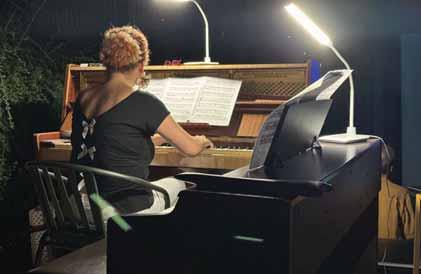
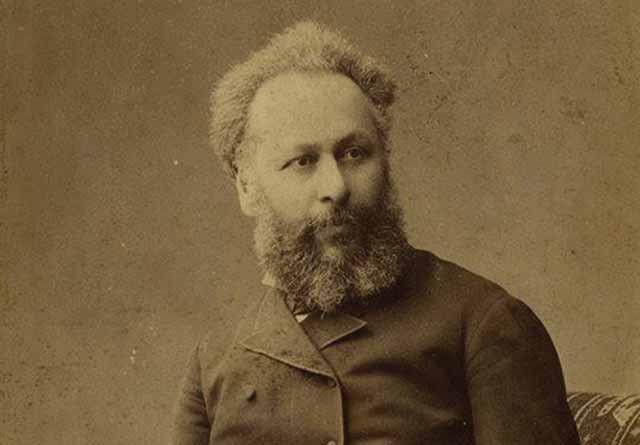
Lia Bagrationi’s Sacred Geometry: 13 Aquariums and a Fish
Inside the haunting installation at AFA, Tbilisi
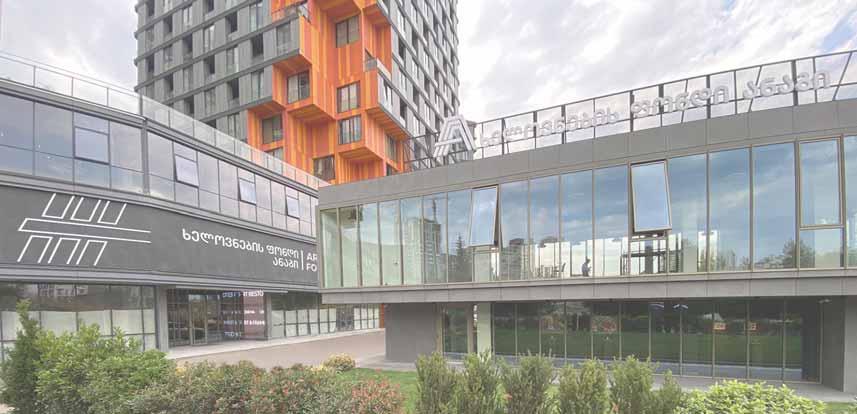
BY TEAM GT
Lia Bagrationi, the acclaimed Tbilisi-based contemporary artist, is known for her largescale installations that draw viewers into quiet, spiralling acts of reflection. Her latest work, “13 Aquariums and a Fish,” offers a similarly meditative and conceptually layered experience. Exploring themes of absence, ritual, and the charged symbolism of the everyday, the installation invites viewers into a space where silence becomes a medium.
We sat down with Lia Bagrationi to delve into the ideas behind this enigmatic project, and the decade-long evolution that led to its creation. Now on view at the Art Foundation Anagi (AFA), the piece has already sparked conversation
within Tbilisi’s contemporary art scene.
“13 AQUARIUMS AND A FISH” IS SUCH A QUIETLY EVOCATIVE TITLE. WHAT INSPIRED THE INSTALLATION, AND HOW DID THE IDEA FIRST COME TO YOU?
This idea had been in my mind for about 10 years. At one point, I was considering an exhibition with just a single aquarium and a single fish. But I couldn’t bring the concept to full resolution at the time. Then, when I received an exhibition proposal from the Art Foundation Anagi, I decided to revisit and scale up the idea. After a conversation with Nana Kipiani (curator of the project, GT), we concluded that there should be thirteen aquariums and one fish. It’s a Gospelbased iconographic scene, but not a historical narrative. It’s a contemporary interpretation.
IN A SENSE, IT’S A REIMAGINING OF THE LAST SUPPER, SET IN A DIFFERENT KIND OF PRESENT?
It’s not just a moment that happened once in the past—it’s a daily reality. Every day, we face the choice to come together or to betray
Yes, the Last Supper, as a biblical narrative, is something I’ve reinterpreted through a contemporary lens. It’s not just a moment that happened once in the past—it’s a daily reality. Every day, we face the choice to come together or to betray.
HOW DID YOU ARRIVE AT THE INSTALLATION’S VISUAL LANGUAGE?
The installation is arranged in a circle— a form that, in itself, symbolizes continuity. Whenever I’m invited to exhibit, I always take the surrounding space into account. In this case, a circular layout allowed for the most natural expression of line. The circle also embodies repetition—something that returns, again and again.
PUBLISHER & GM
George Sharashidze
COMMERCIAL
DEPARTMENT
Commercial Director: Iva Merabishvili
Marketing Manager: Natalia Chikvaidze
EDITORIAL DEPARTMENT:
Editor-In-Chief: Katie Ruth Davies
I wanted to create a sense of stillness, a visual language of silence. A silence that speaks, but silently. Glass represents transparency; water stands for purity and renewal. The only elements inside the aquariums are porcelain vessels crafted by my own hand. These are the sole indicators of my direct presence. There are no figures in this Last Supper. Instead, these vessels serve as quiet traces of those who once were. One of the guiding motifs for me is premonition. It can be read in many ways, but for me, it’s exactly that—premonition. Speaking about it too much might take us too far afield… But within the work, it manifests subtly. These traces—the porcelain vessels—cast shadows, produce reflections, suggest still-
ness, even a sense of cold. They might speak of death, or of life—of many things. The thirteenth aquarium—or perhaps the first—looks identical to the others. But in it there is life, a fish—an ancient Christian symbol, the Ichthys. It is not merely a symbol here: it is a body, made manifest. Its presence does not end. For me, at this moment, it is the only place where life exists. It radiates an energy, one that each viewer may perceive differently, but that unmistakably manifests.
THE ARCHITECTURAL BACKDROP—A PAINTED SKY, GLIMPSES OF MODERN BUILDINGS—WHAT ROLE DOES THAT SETTING PLAY?
In the three windows, I depict modern
buildings—landscapes seen from different angles. It’s a way of reframing iconography within a contemporary context. Time becomes displaced, layered. This is happening now. The backdrop is painted on canvas. The sky appears blue and cloudless, but it’s an appliqué and can be removed. Thus, it’s not a constant. That kind of sky might exist today, but not tomorrow. So no, I’m not offering a paradise. The conditions can always change.
HOW DID YOUR COLLABORATION WITH THE ART FOUNDATION ANAGI INFLUENCE THE PROCESS OR FINAL PRESENTATION?
I love exhibitions, because they bring an idea into form. They allow me to see it with my own eyes—to realize it. I’m like a writer who keeps editing until a book goes to print. Once it’s printed, that’s it. Once the work is installed, it exists. Of course, I always see things I might have added or changed, but a documented work is fixed in time.
After the opening, I realized this installation would have worked even better in a more intimate, enclosed, darker space, which we tried to approximate. I’m never 100 percent satisfied after a show. I do like it, but exhibitions always reveal new layers. Technically, it was one of the most difficult works I’ve ever created. I’m deeply grateful to the Art Foundation Anagi for making this possible. On my own, it would have been hard to accomplish. I’ve been carrying this idea for 10 years. In short—we worked well together.
AND WHAT’S ON THE HORIZON FOR YOU NEXT?
Starting July 19, my exhibition “Line of Seven, One Missing” will open at the Tunnel exhibition space in the Tsinandali Estate, where it will be on view for a month. I also have other projects in the works… but for now, let’s keep those a mystery.
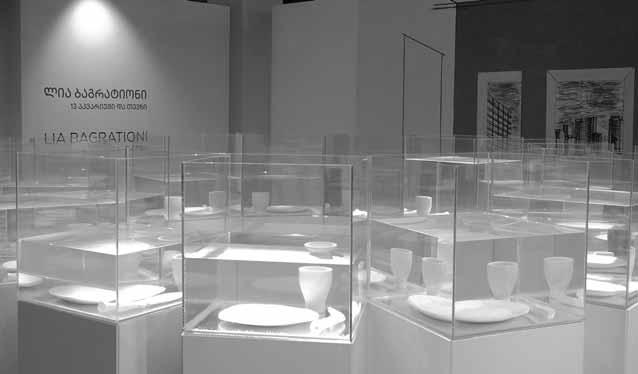
Journalists: Ana Dumbadze
Vazha Tavberidze
Tony Hanmer
Nugzar B. Ruhadze
Ivan Nechaev
Mariam Razmadze
Layout: Misha Mchedlishvili
Photographer: Aleksei Serov
International Relations & Communications
Sofia Bochoidze E: sbochoidze@georgiatoday.ge
Website Editor: Katie Ruth Davies
Webmaster: Sergey Gevenov
Circulation Managers: David Kerdikashvili David Djandjgava
ADDRESS
22 Janashia Str. Tbilisi, 0179, Georgia
Tel.: +995 32 229 59 19 E: info@georgiatoday.ge F: GeorgiaToday
ADVERTISING & SUBSCRIPTION
+995 577 72 52 61
E-mail: marketing@georgiatoday.ge
Reproducing material, photos and advertisements without prior editorial permission is strictly forbidden. The author is responsible for all material. Rights of authors are preserved. The newspaper is registered in Mtatsminda district court.
Reg. # 06/4-309
